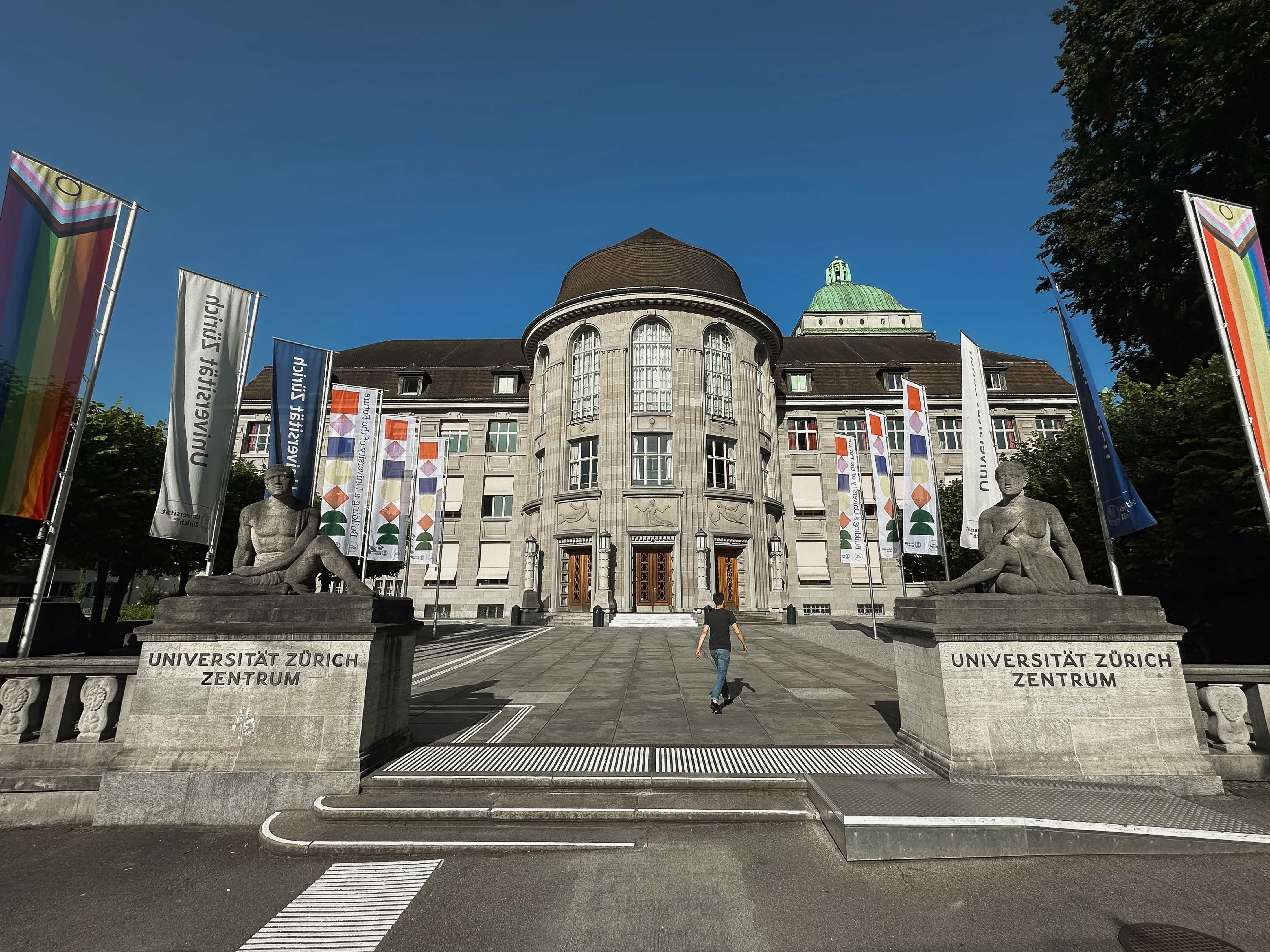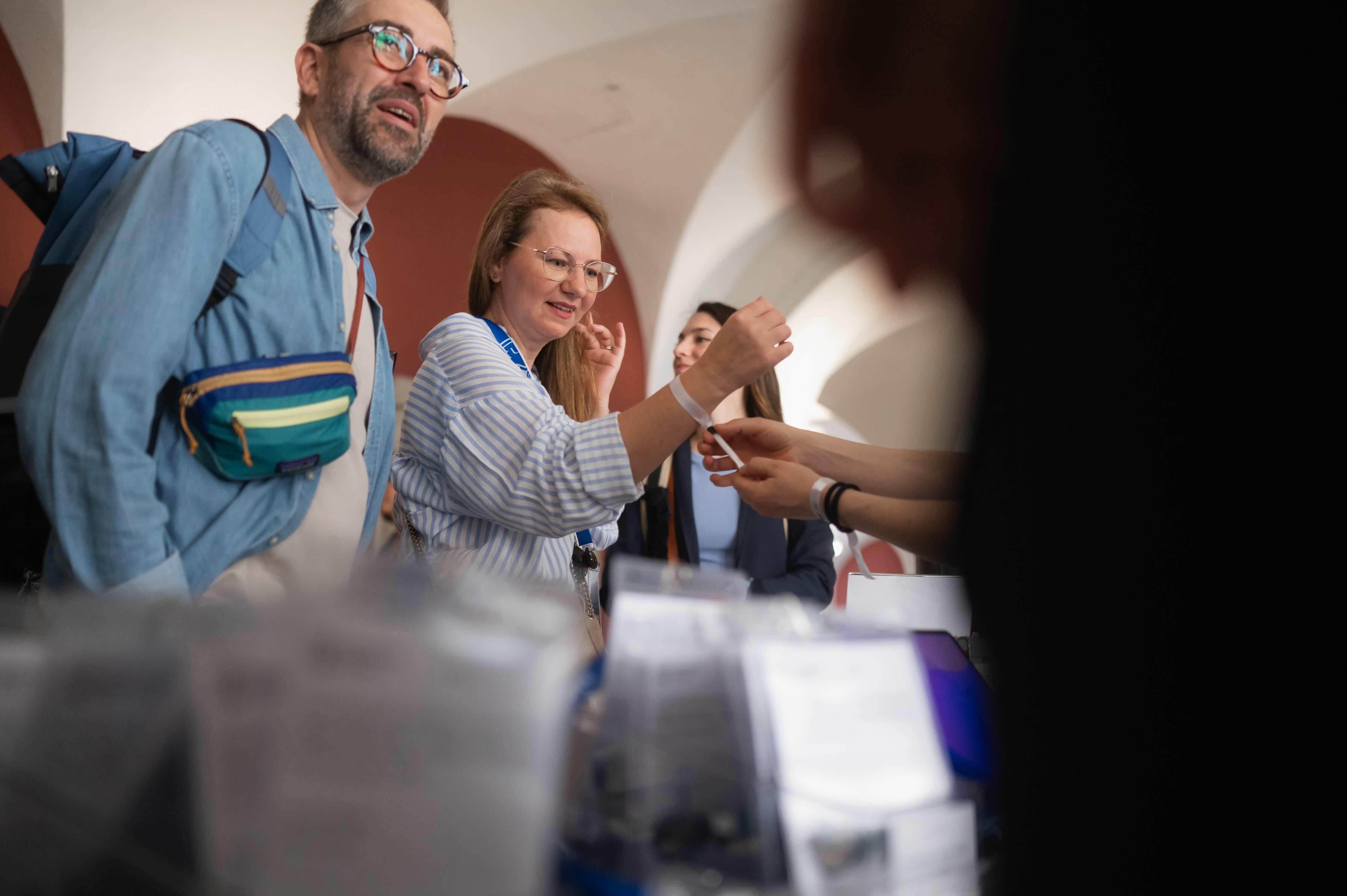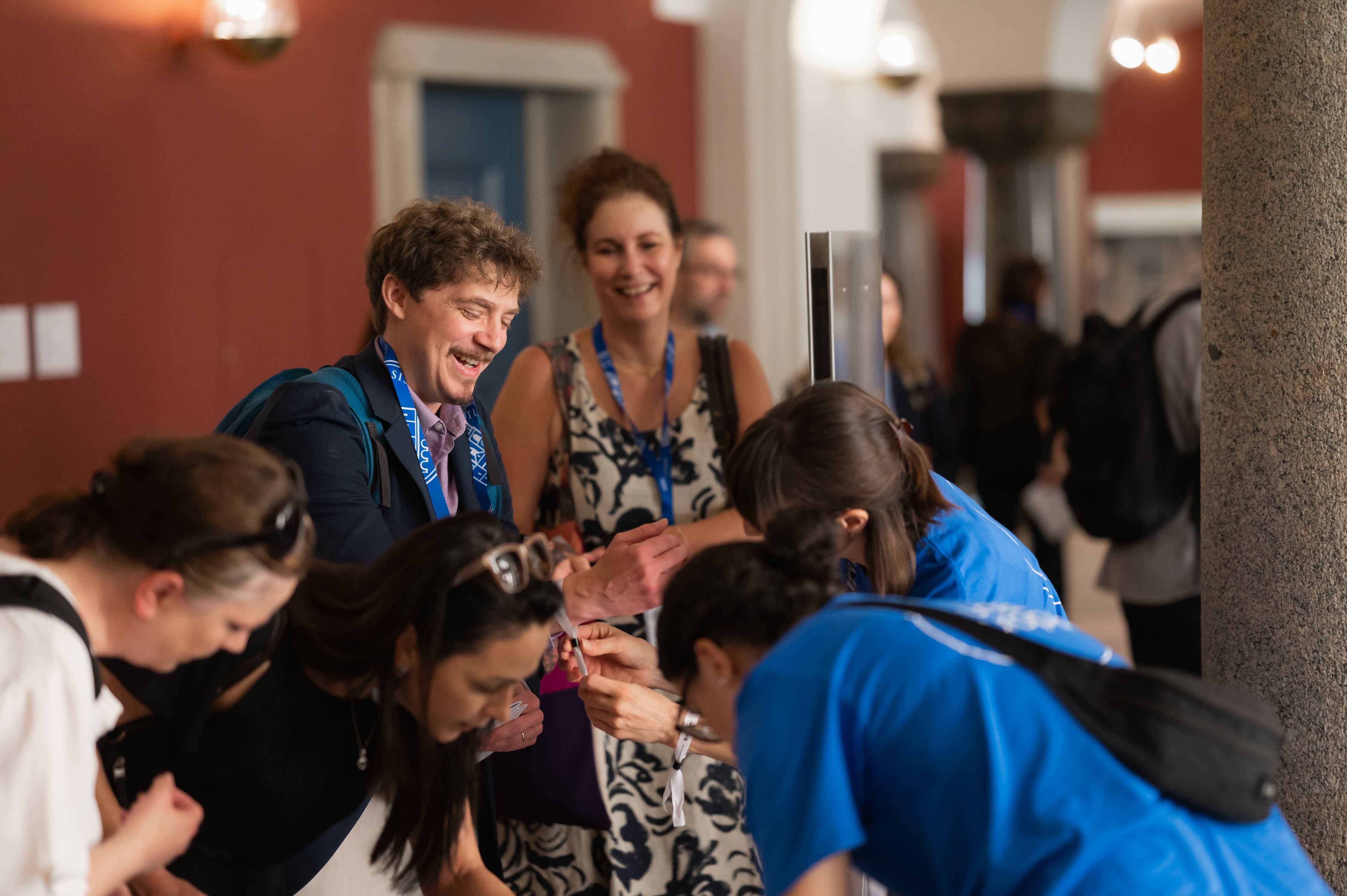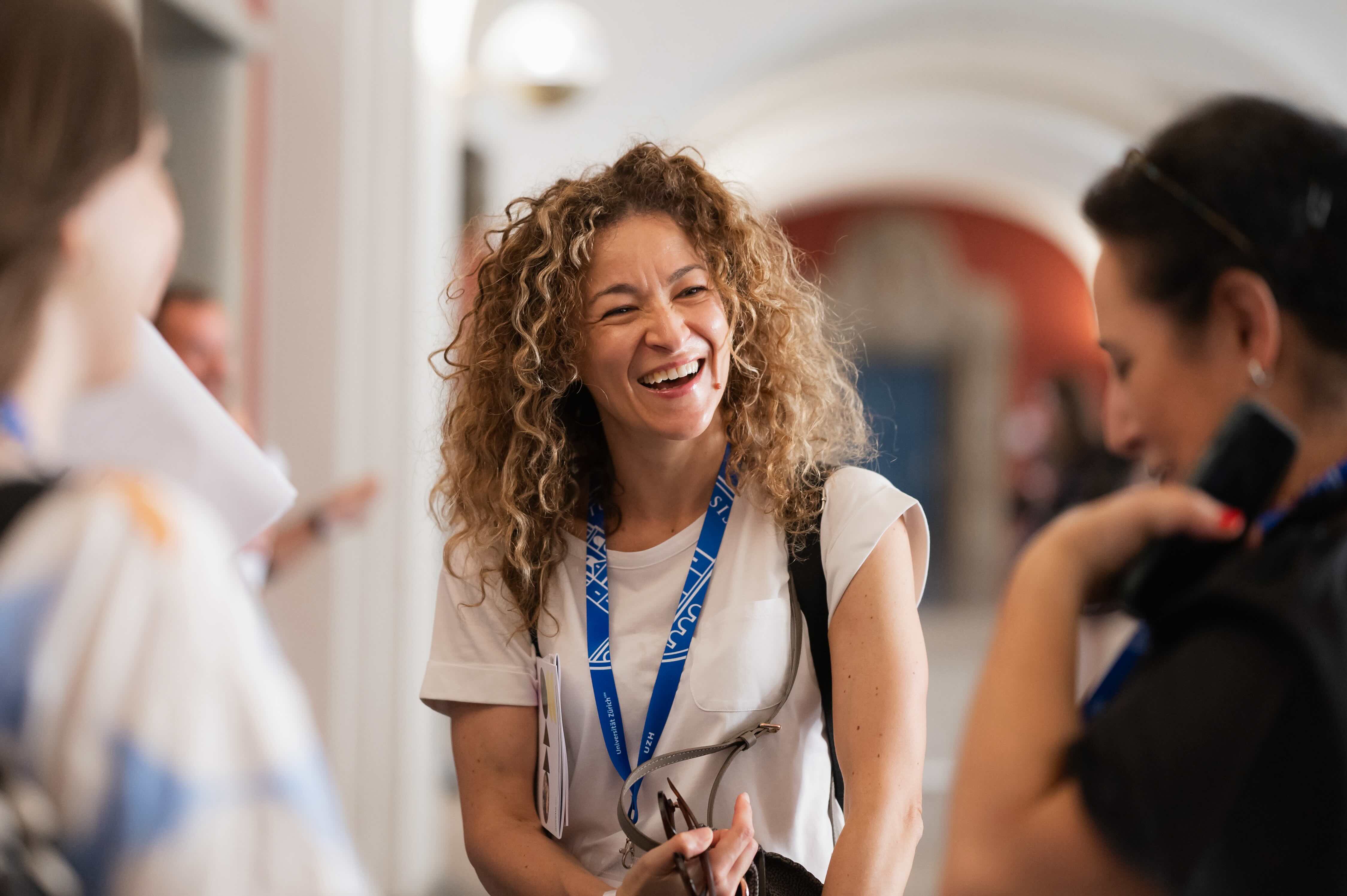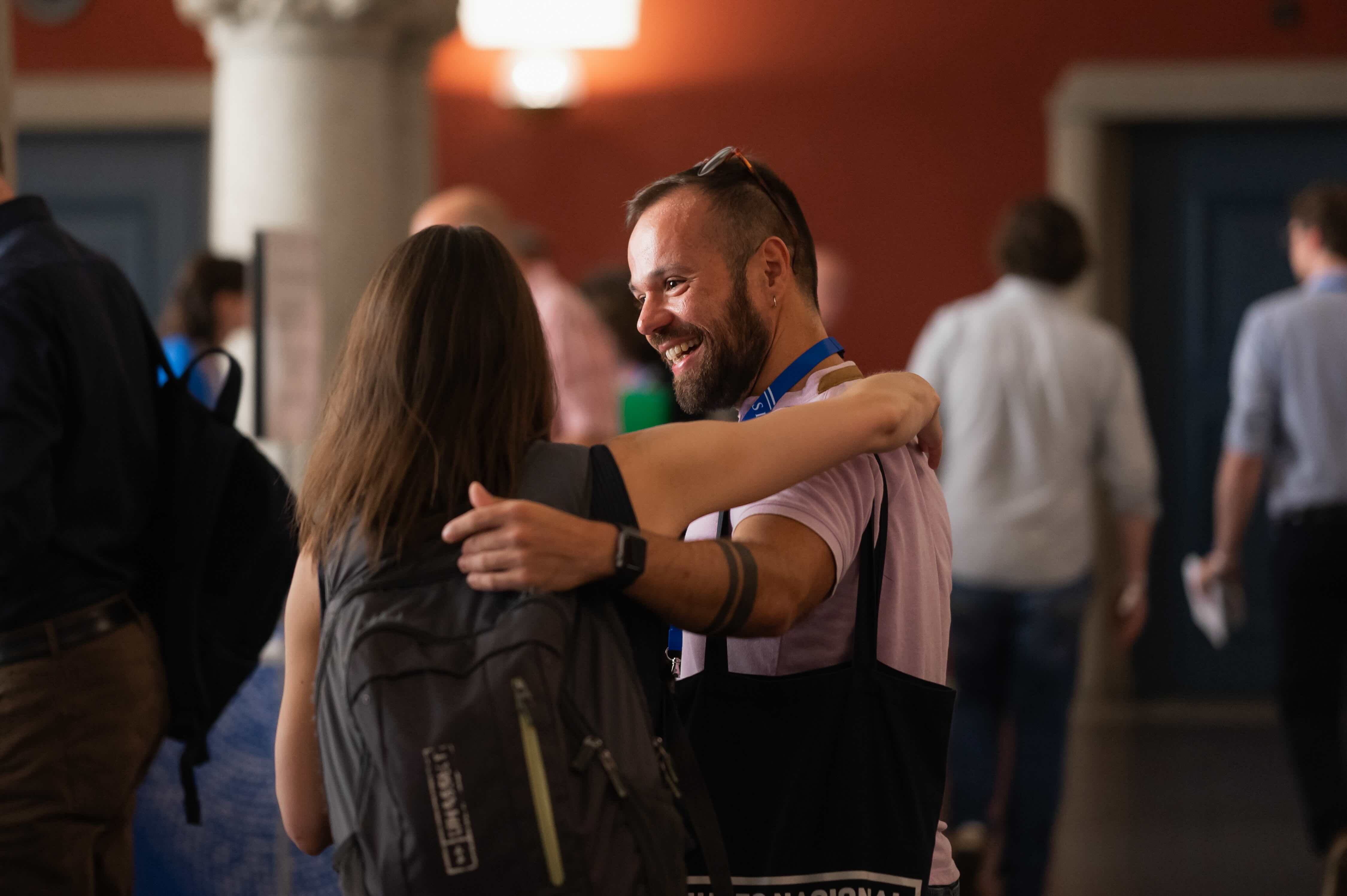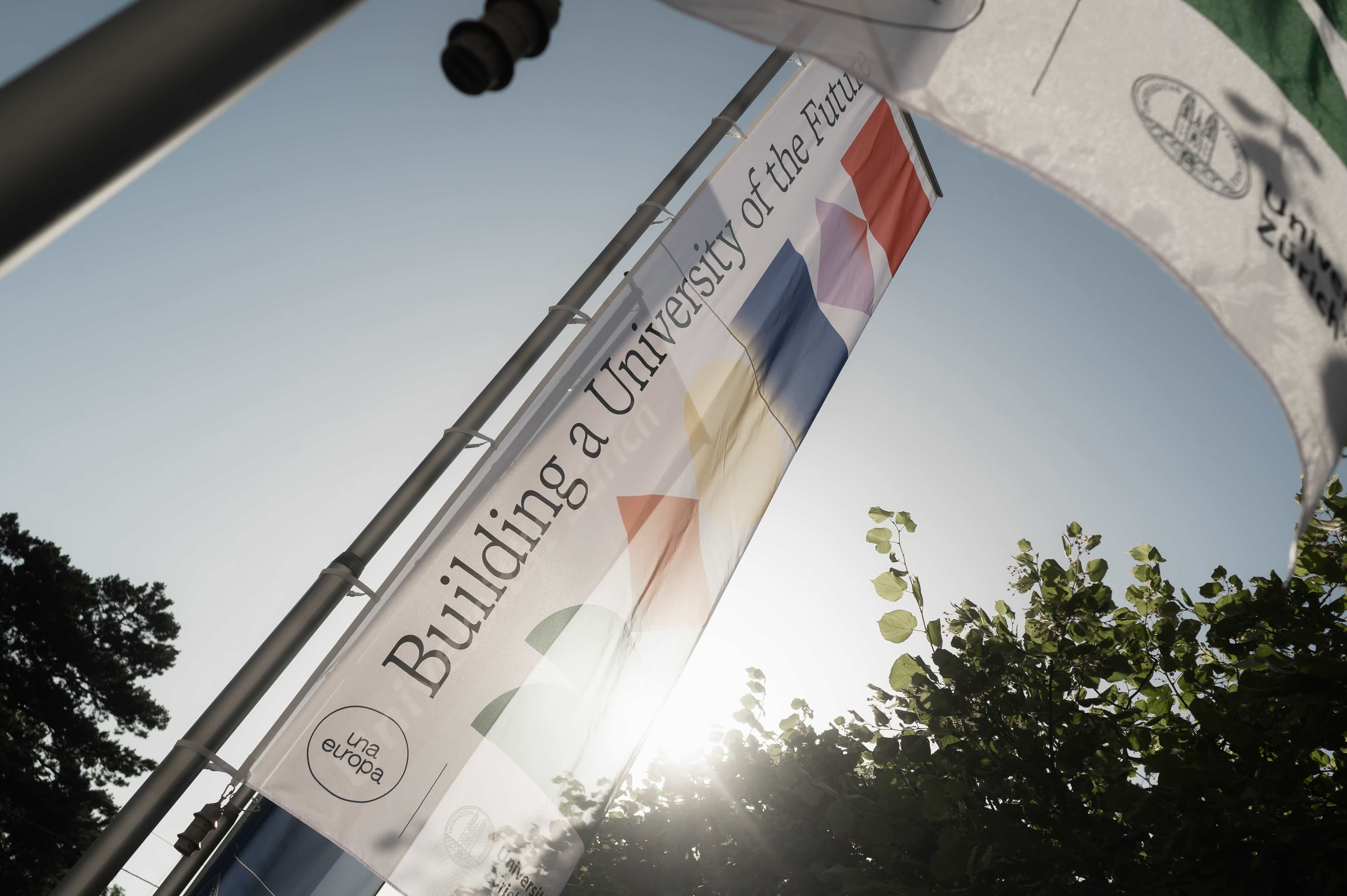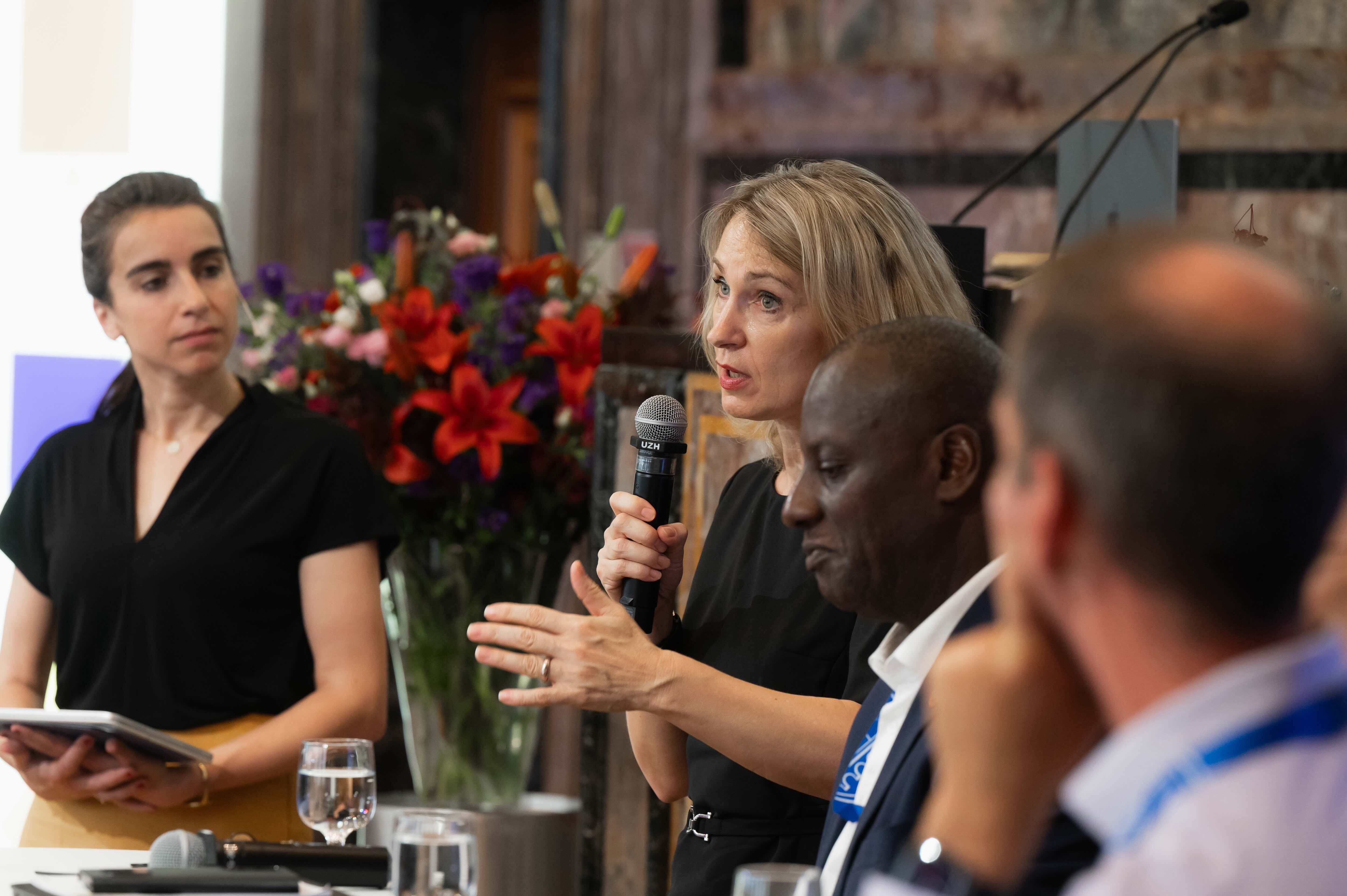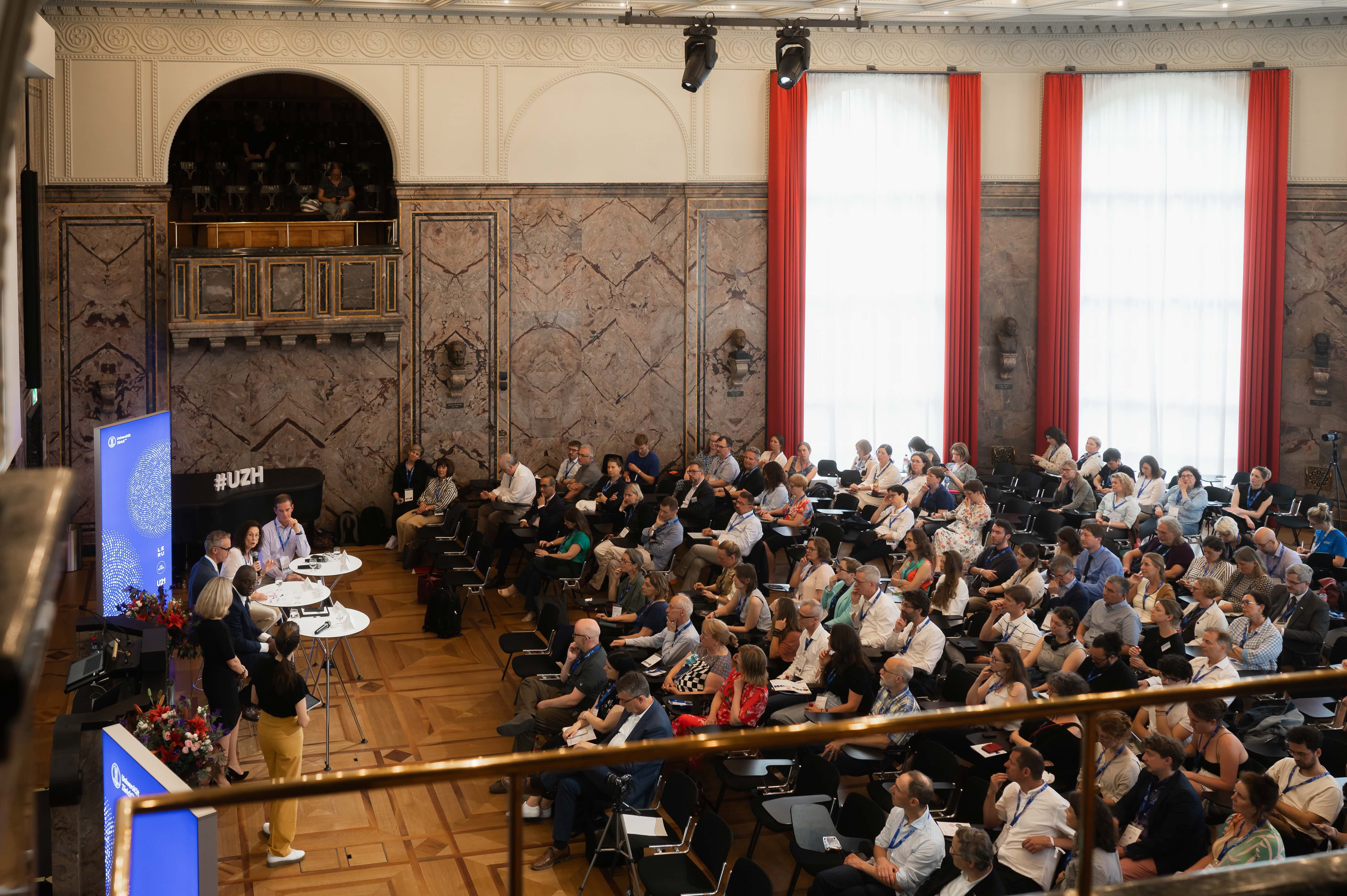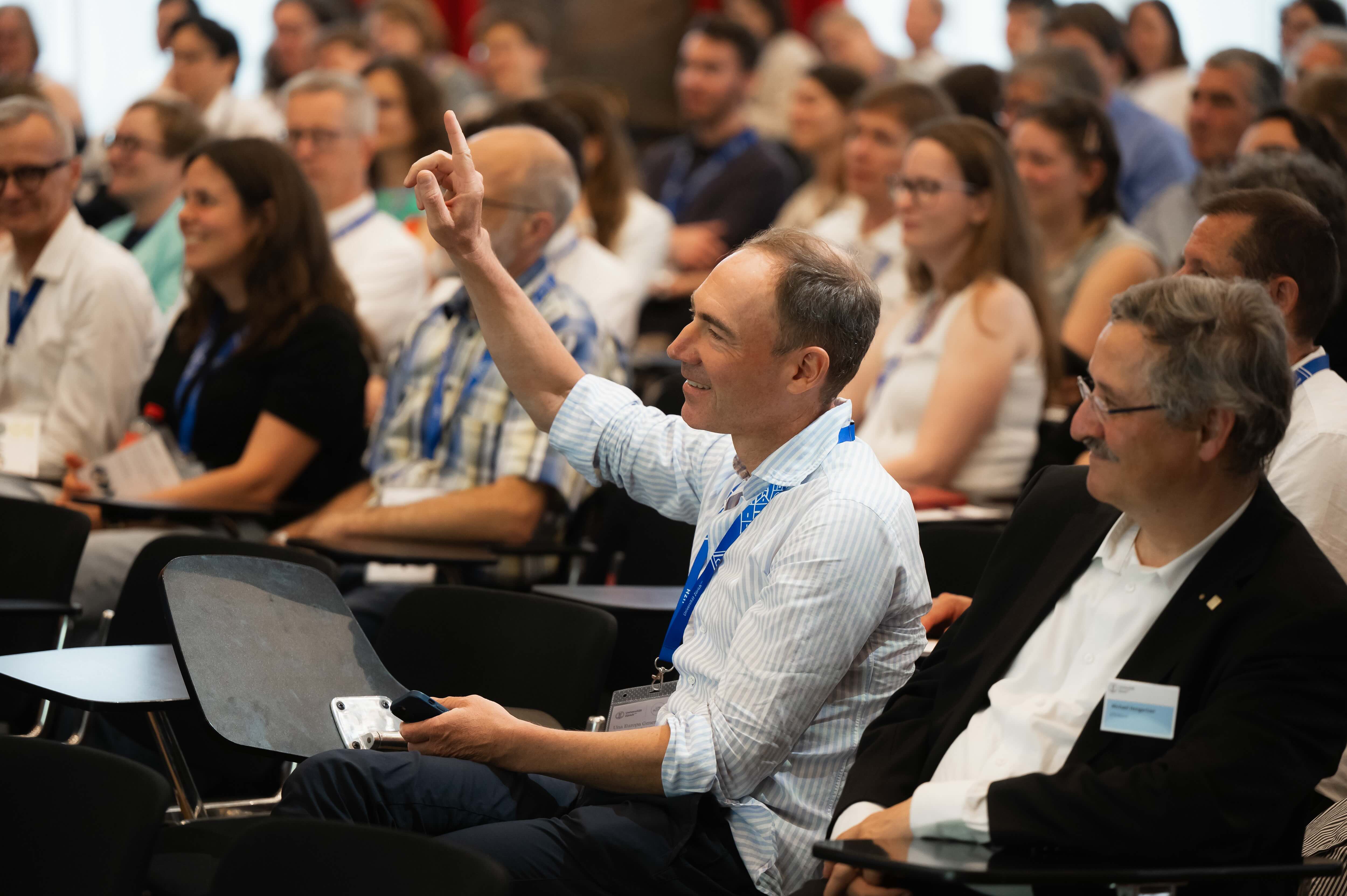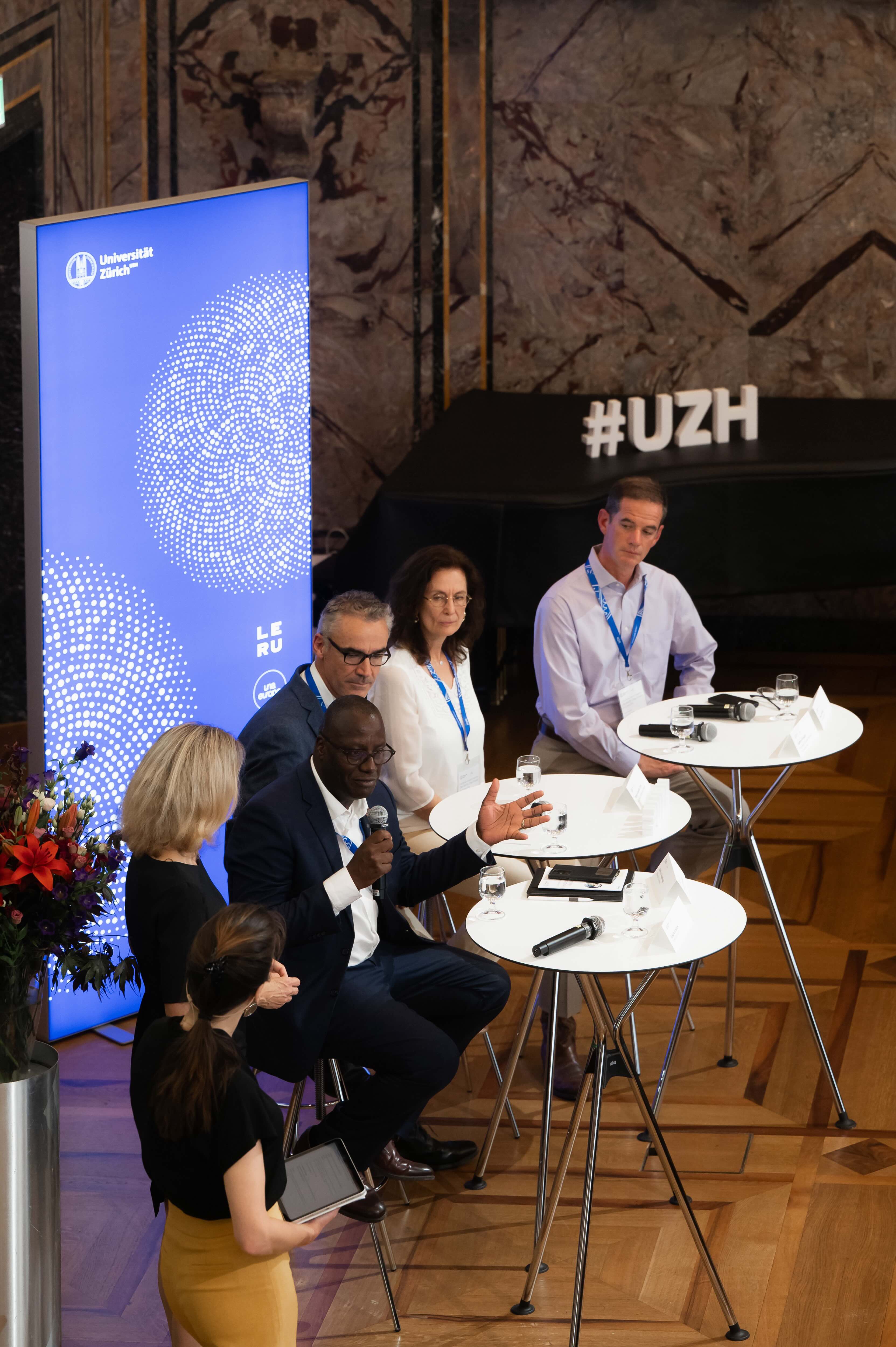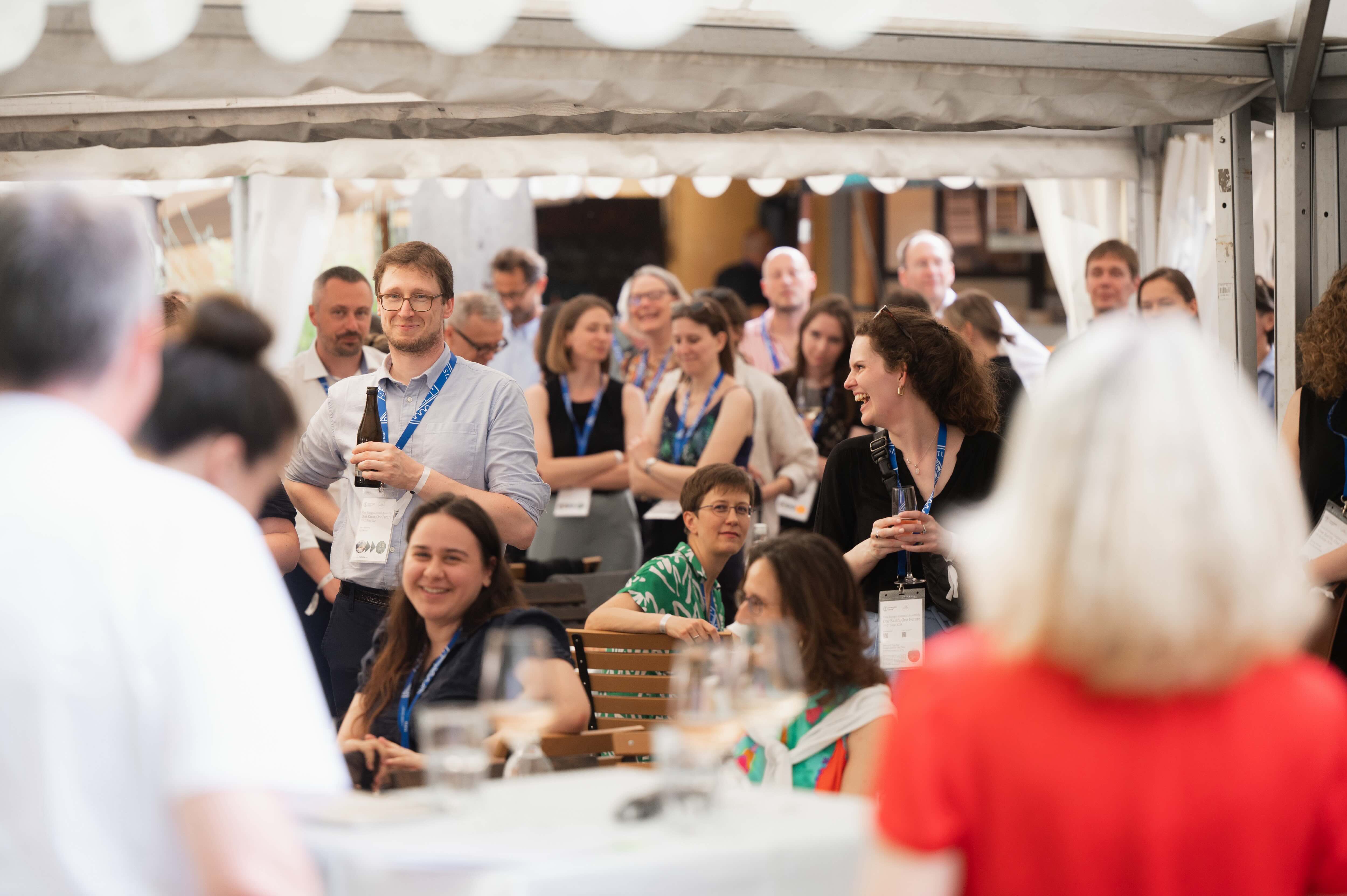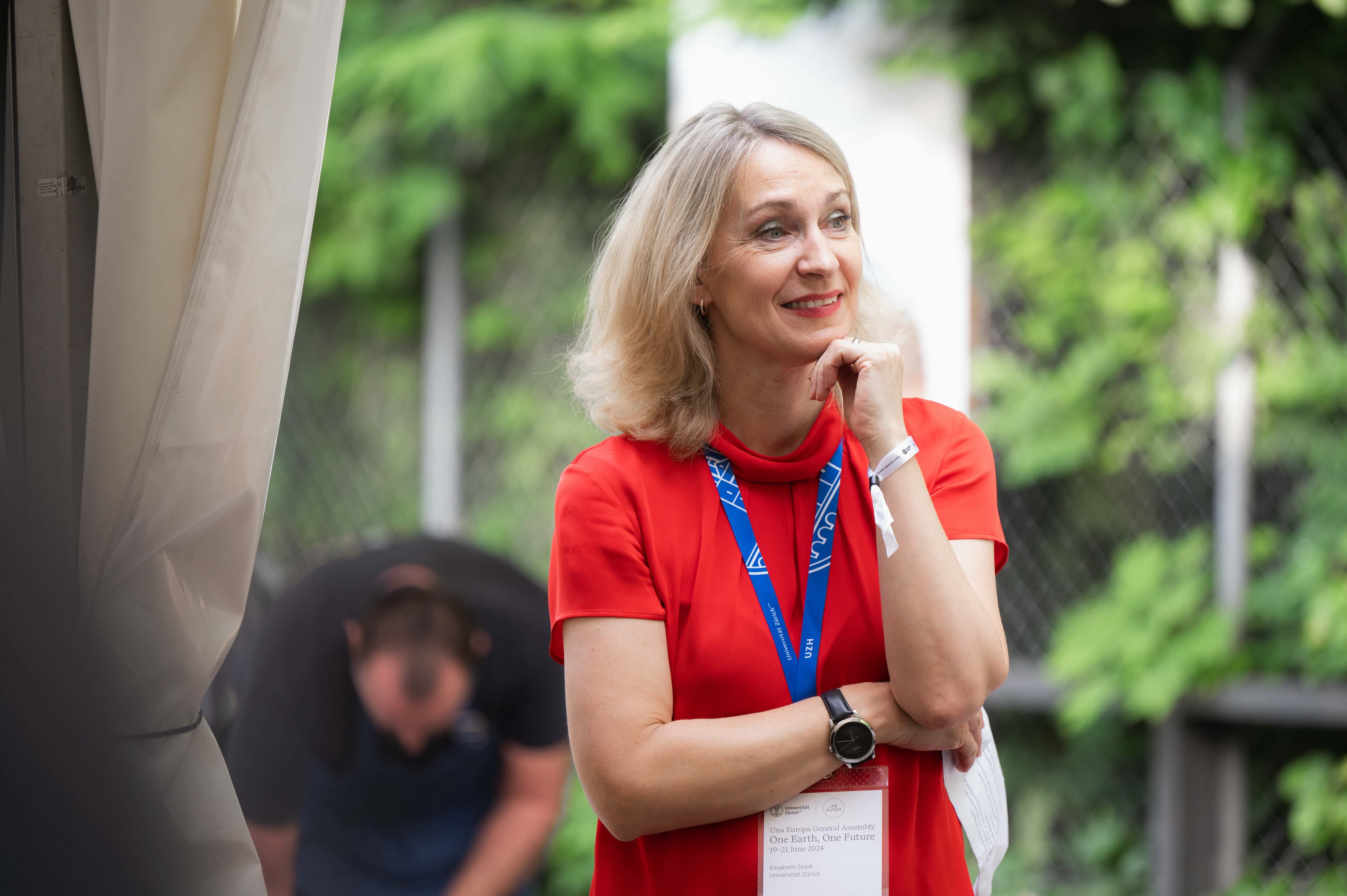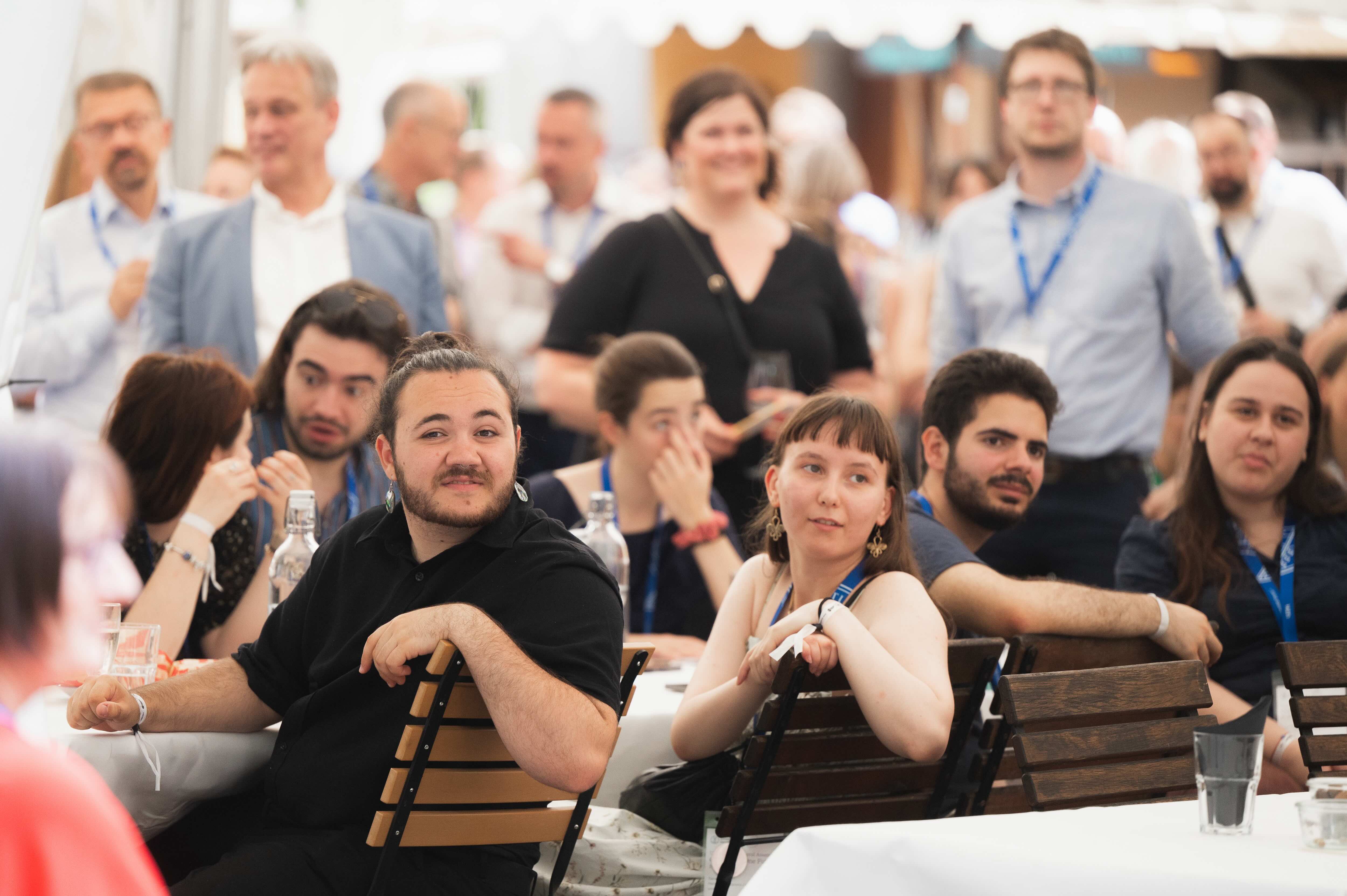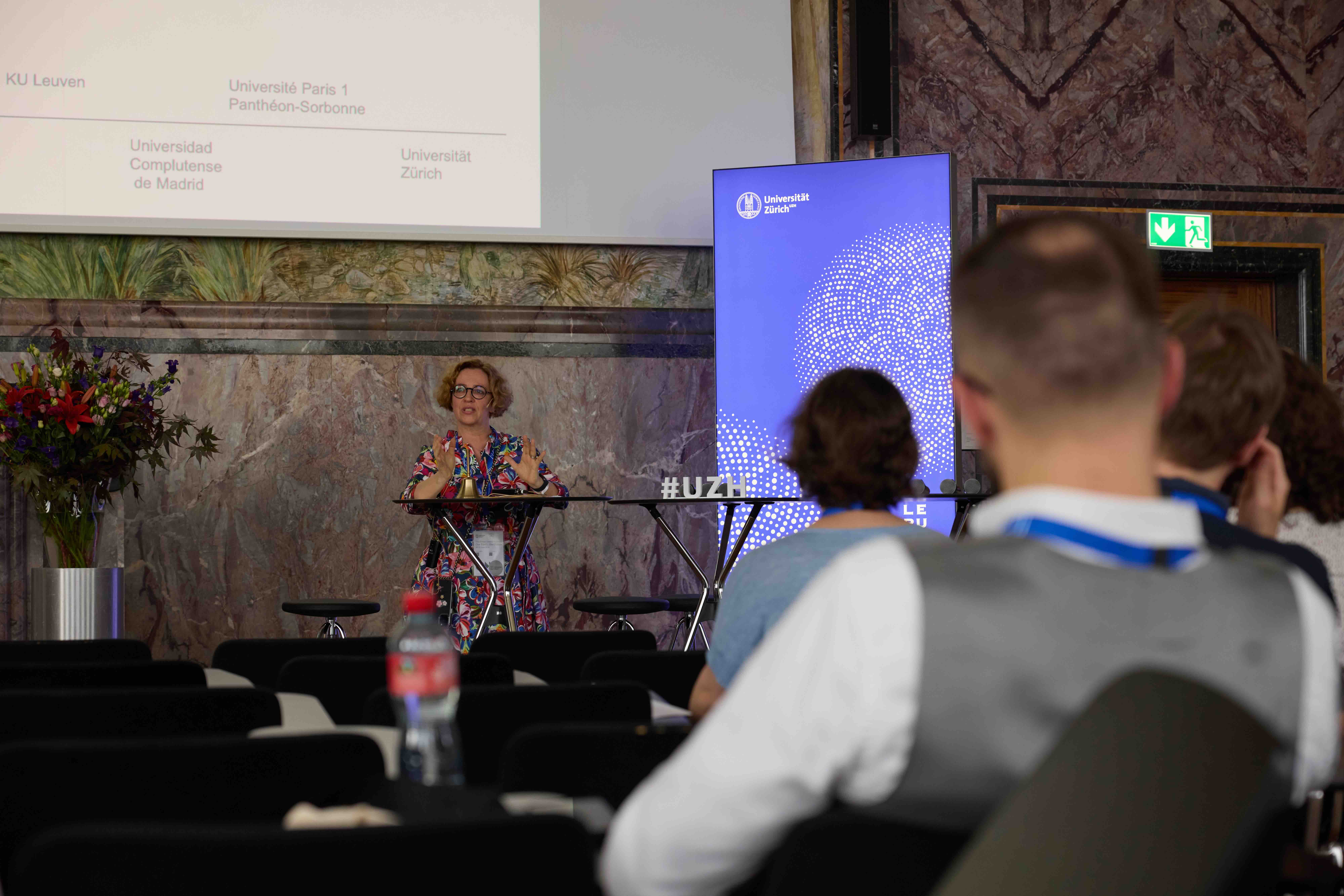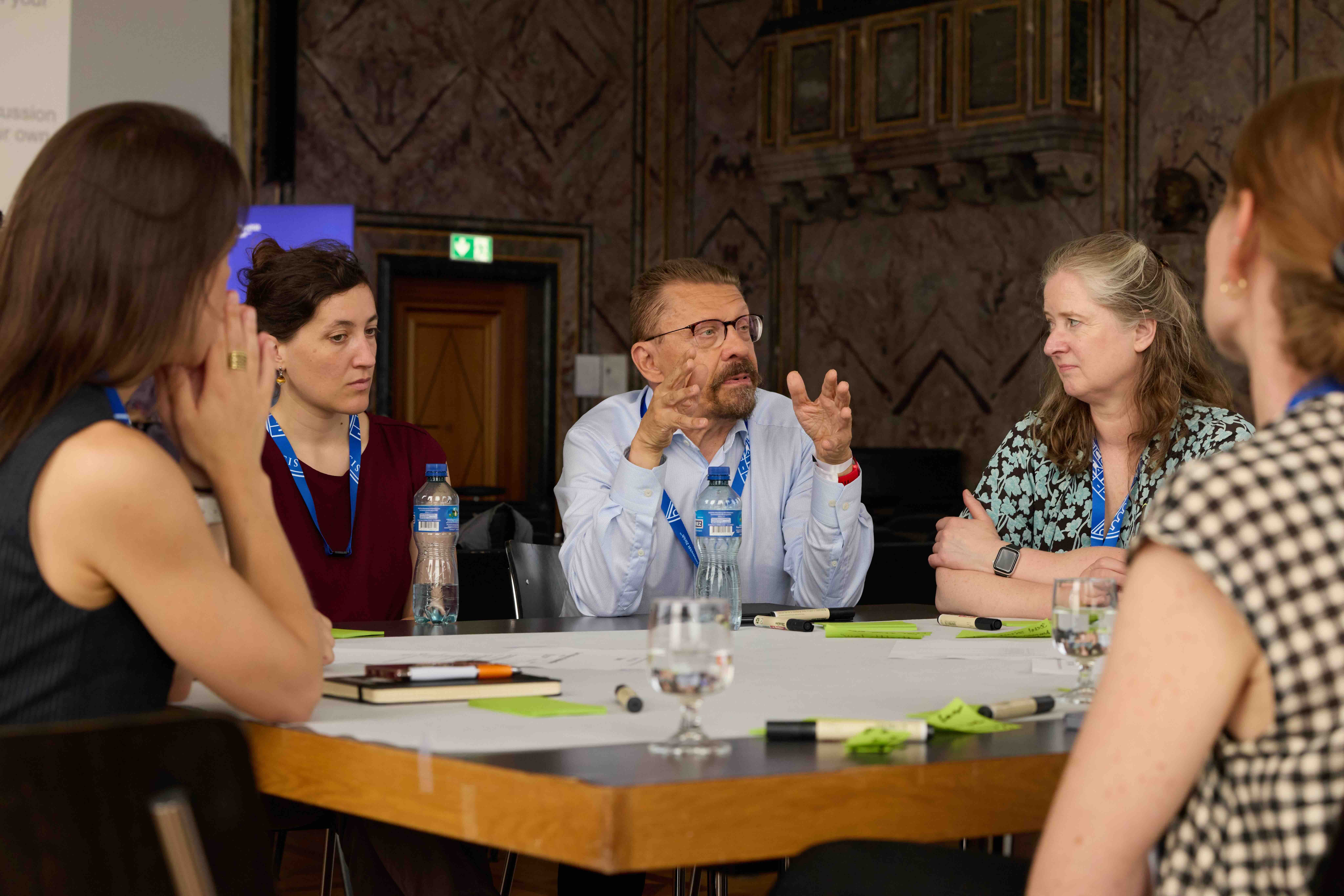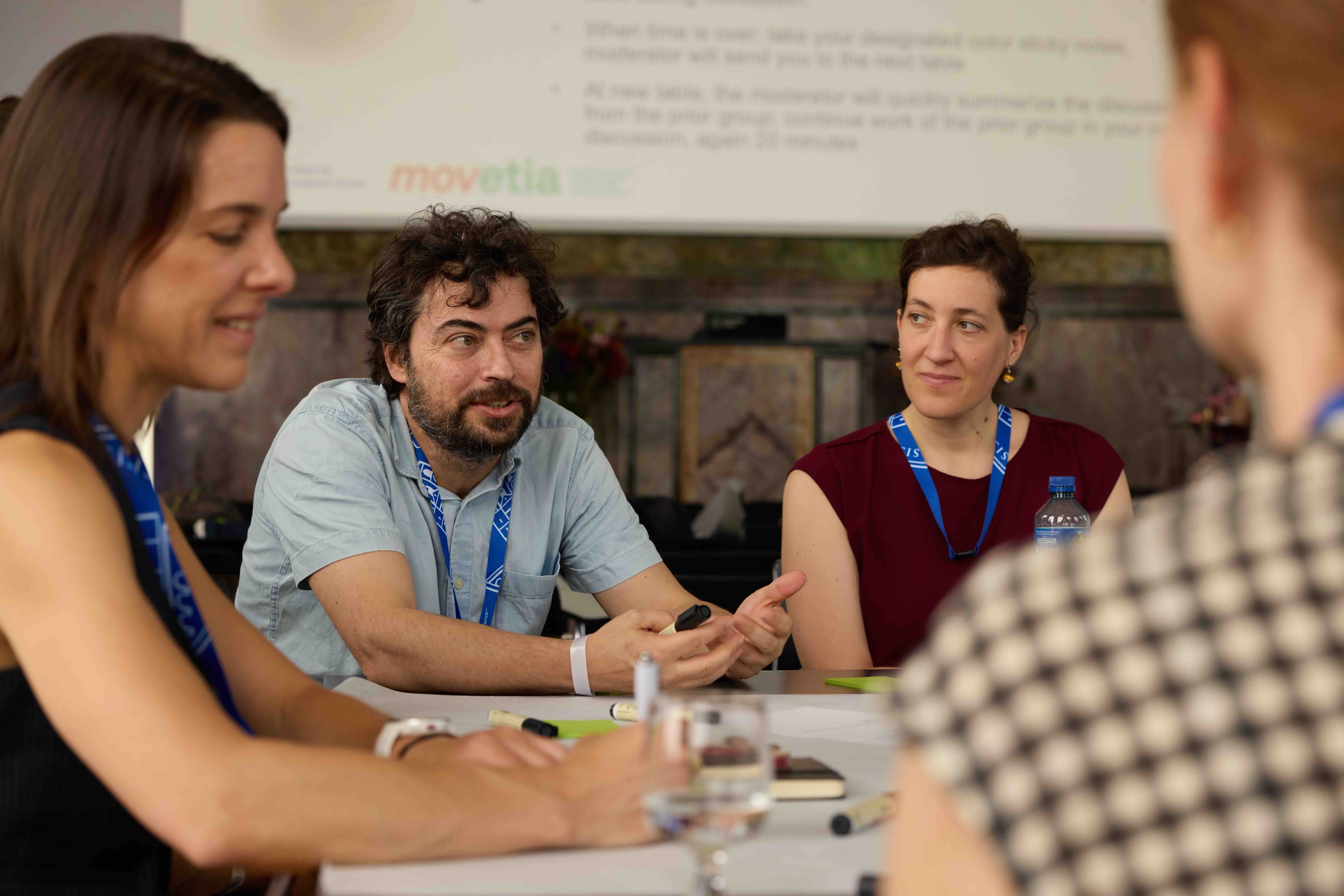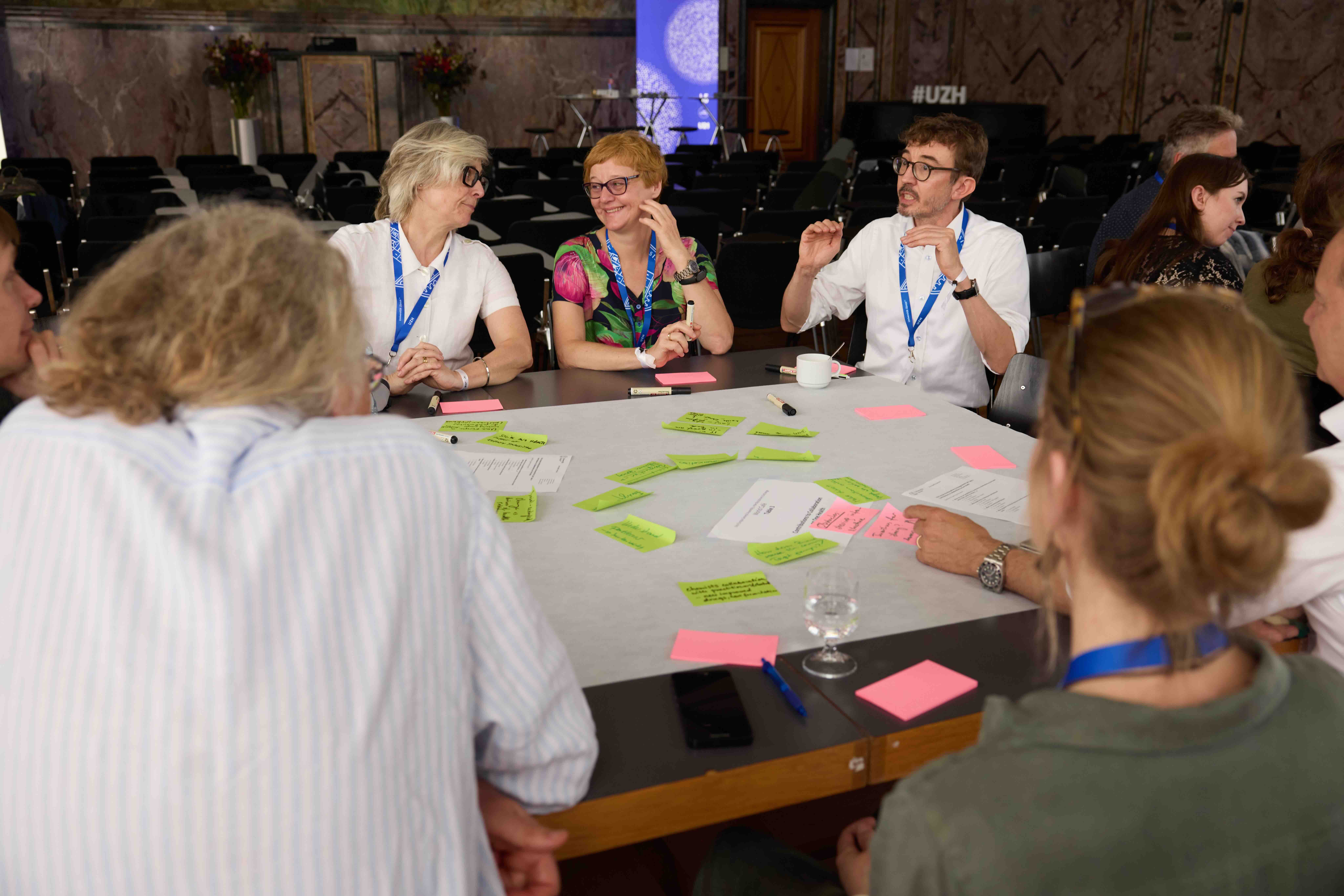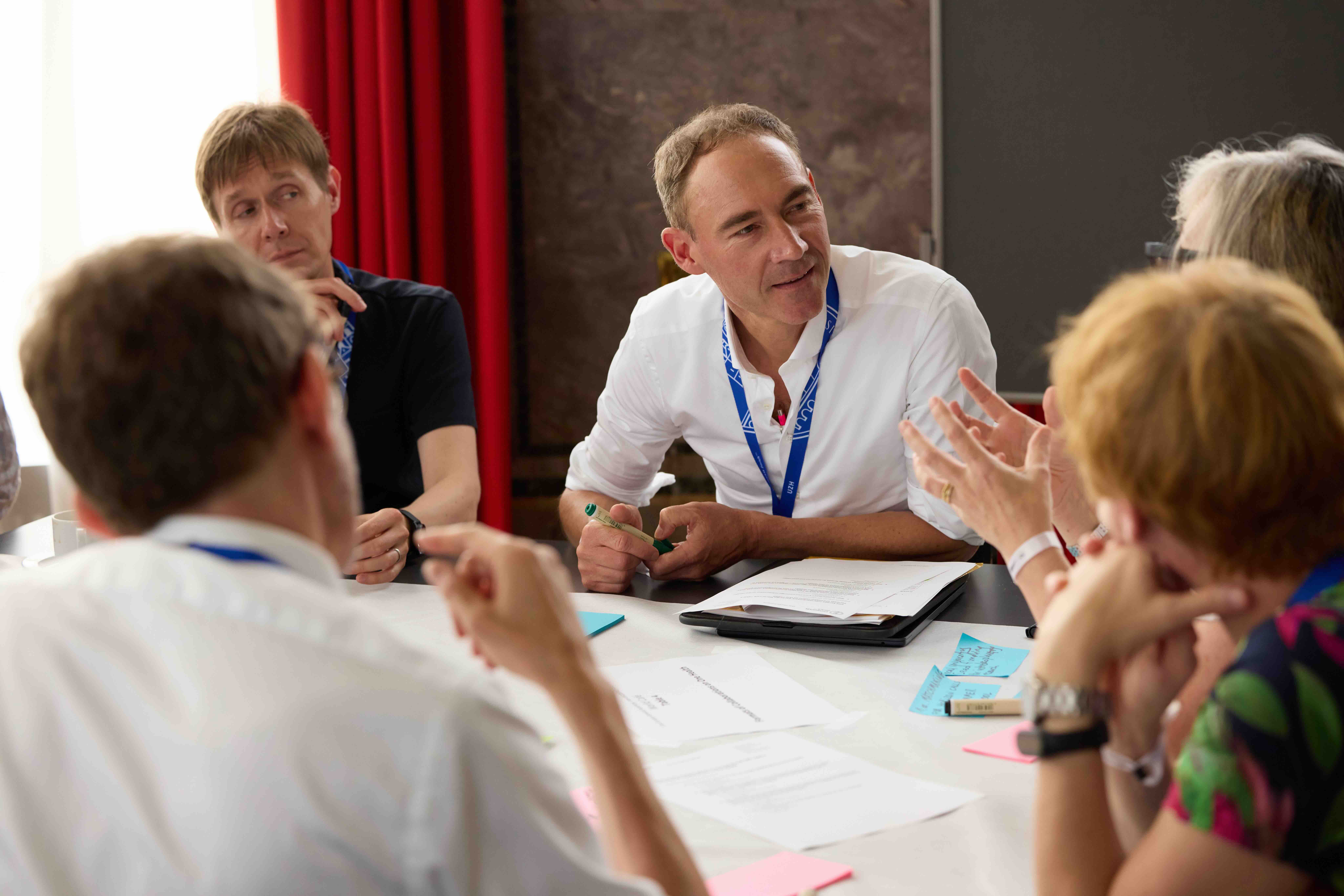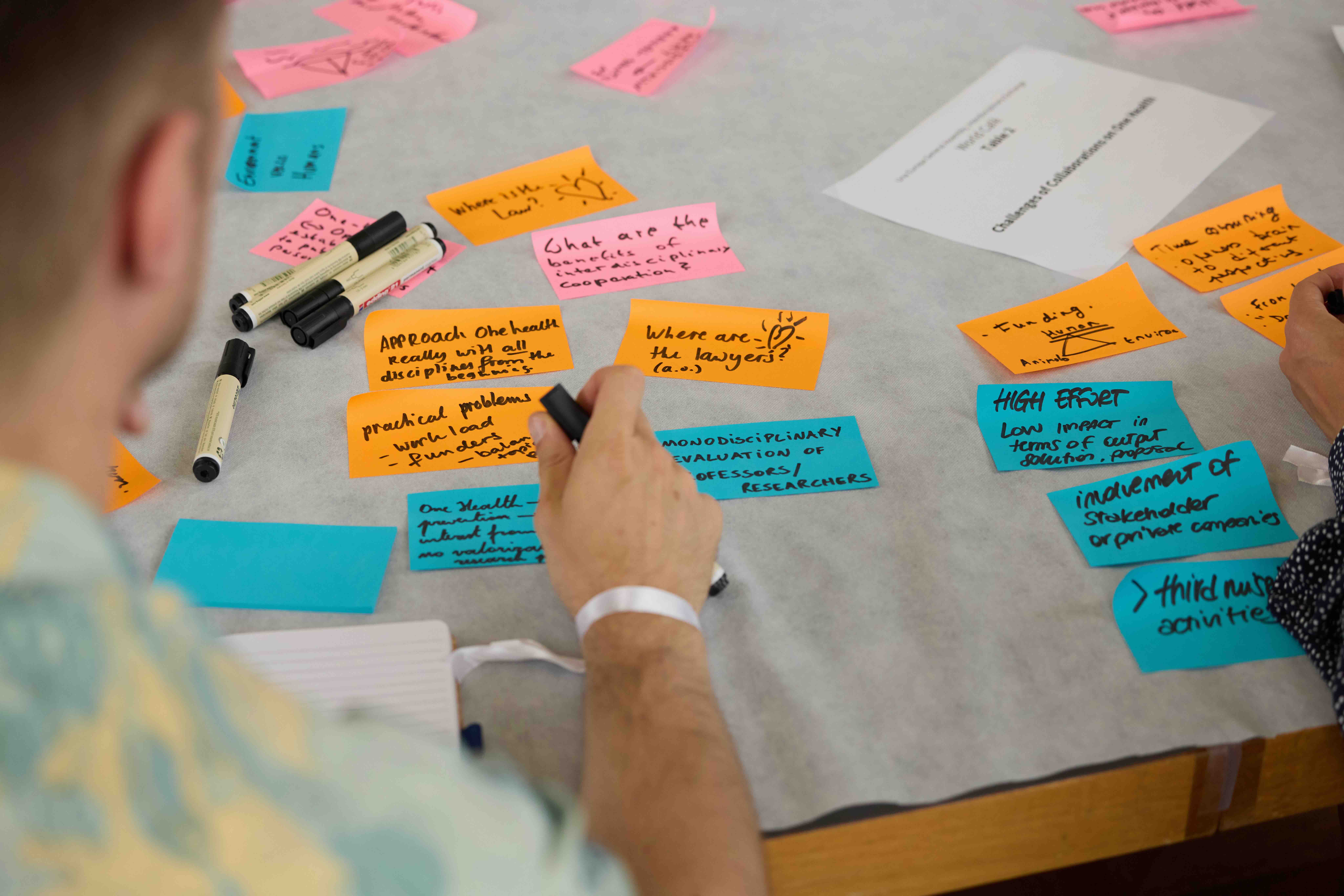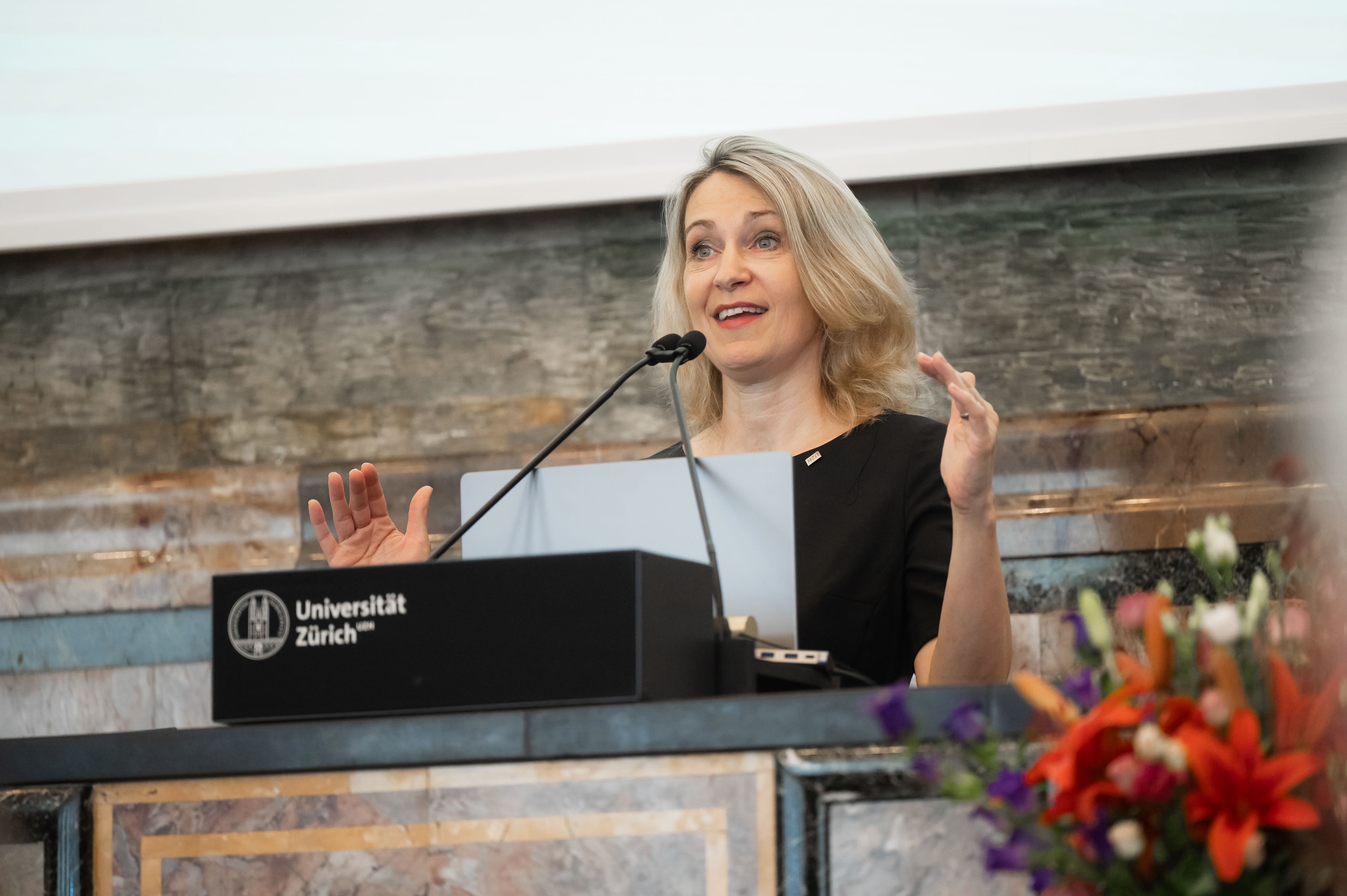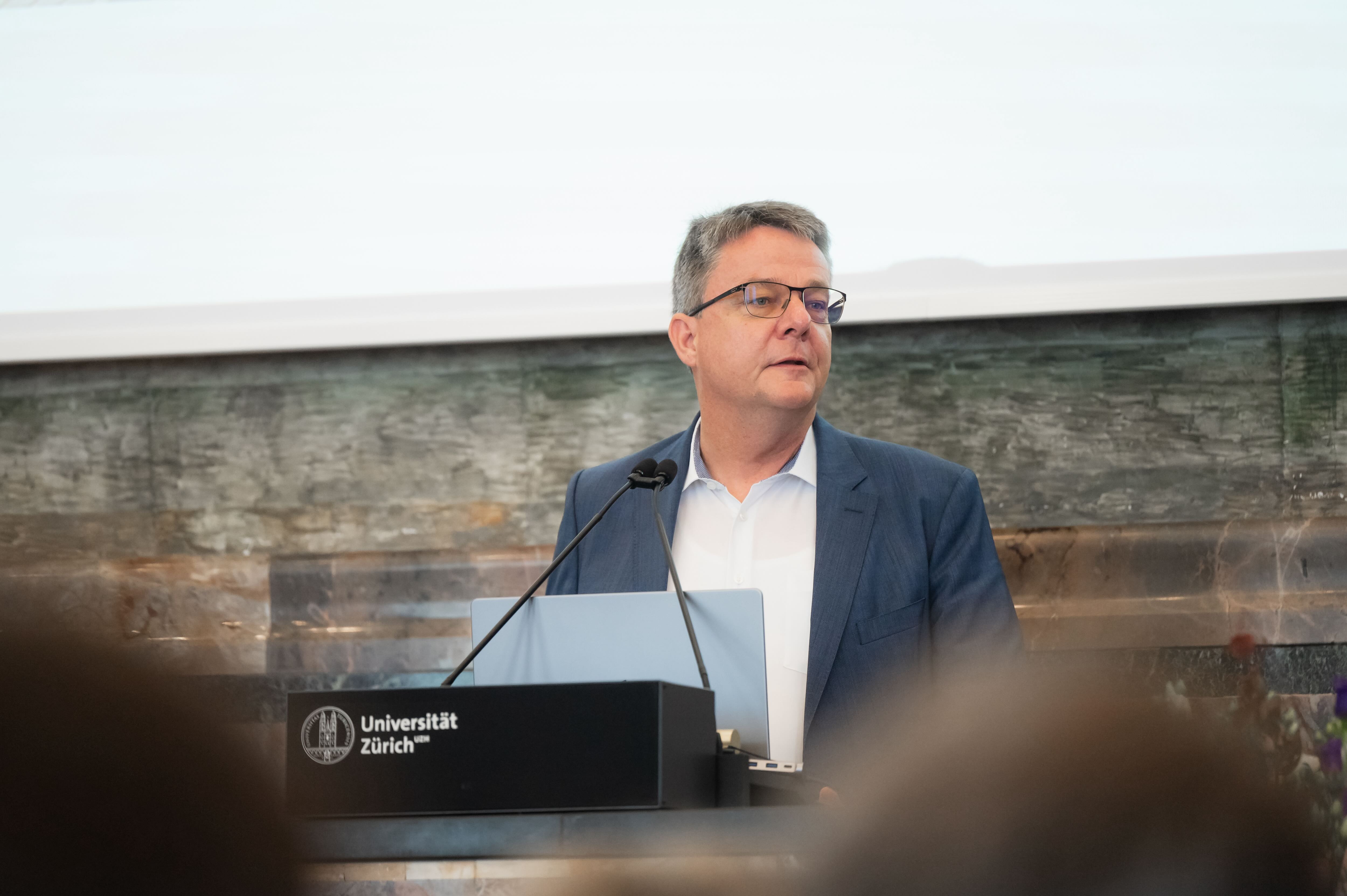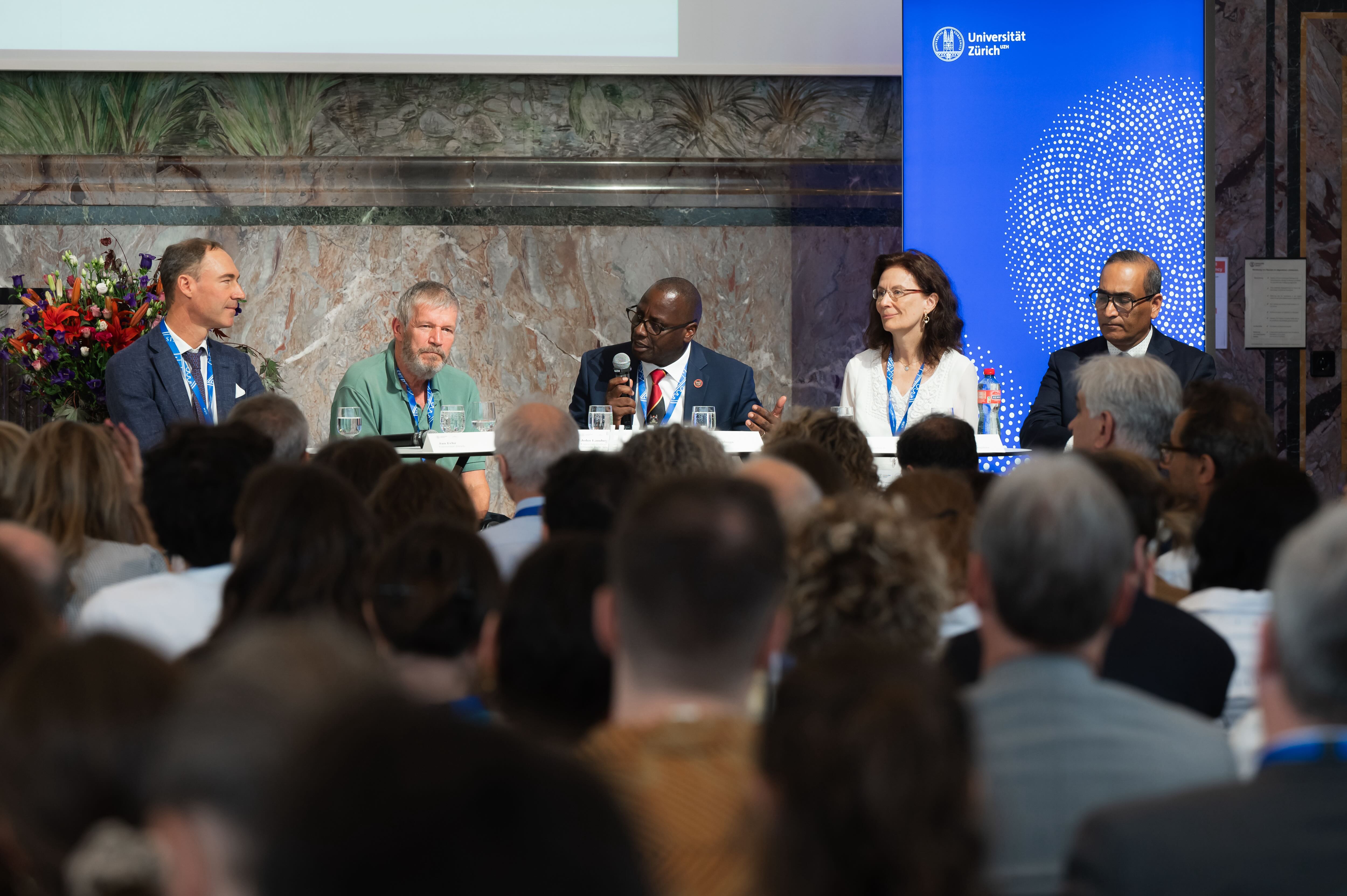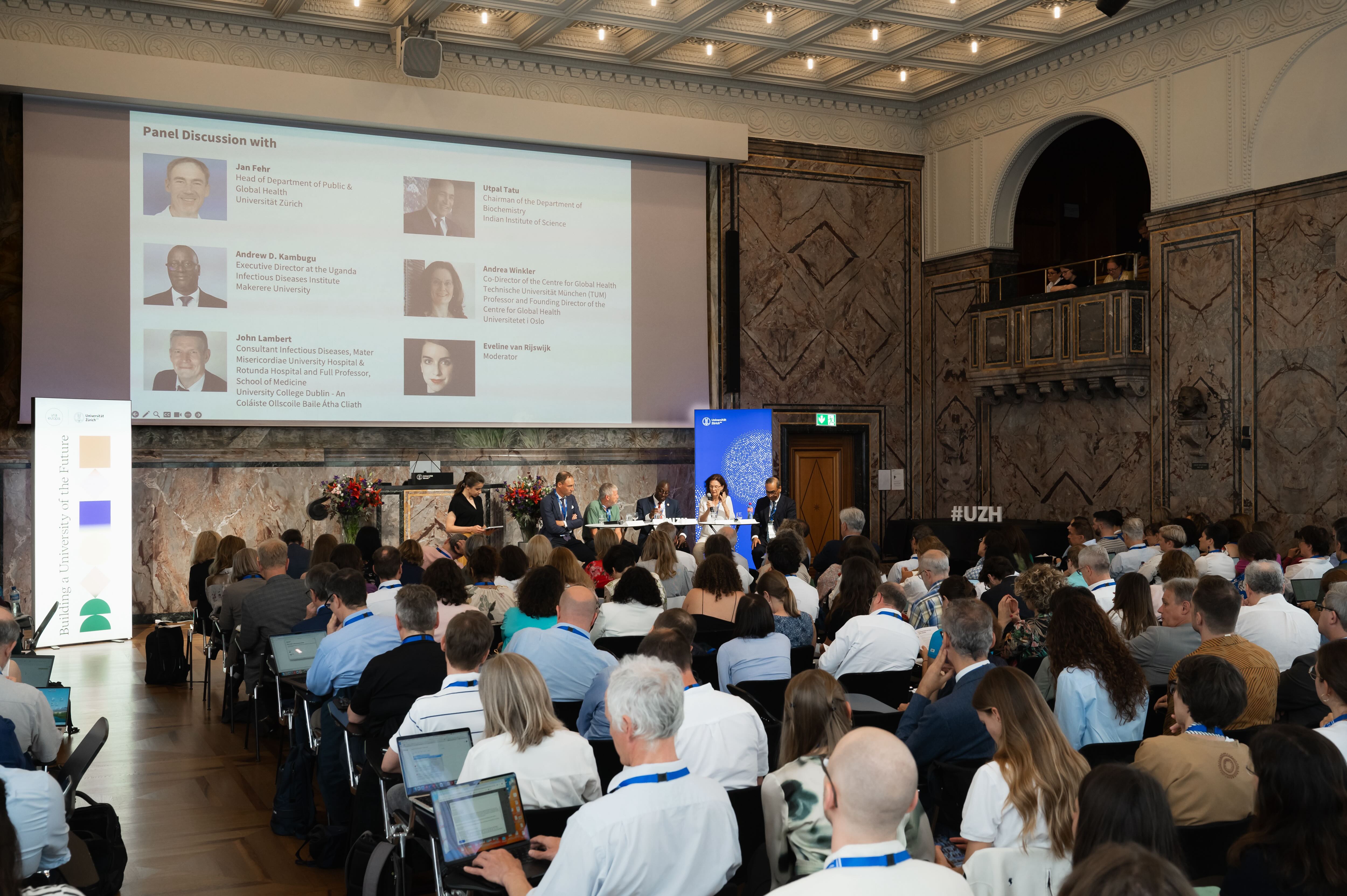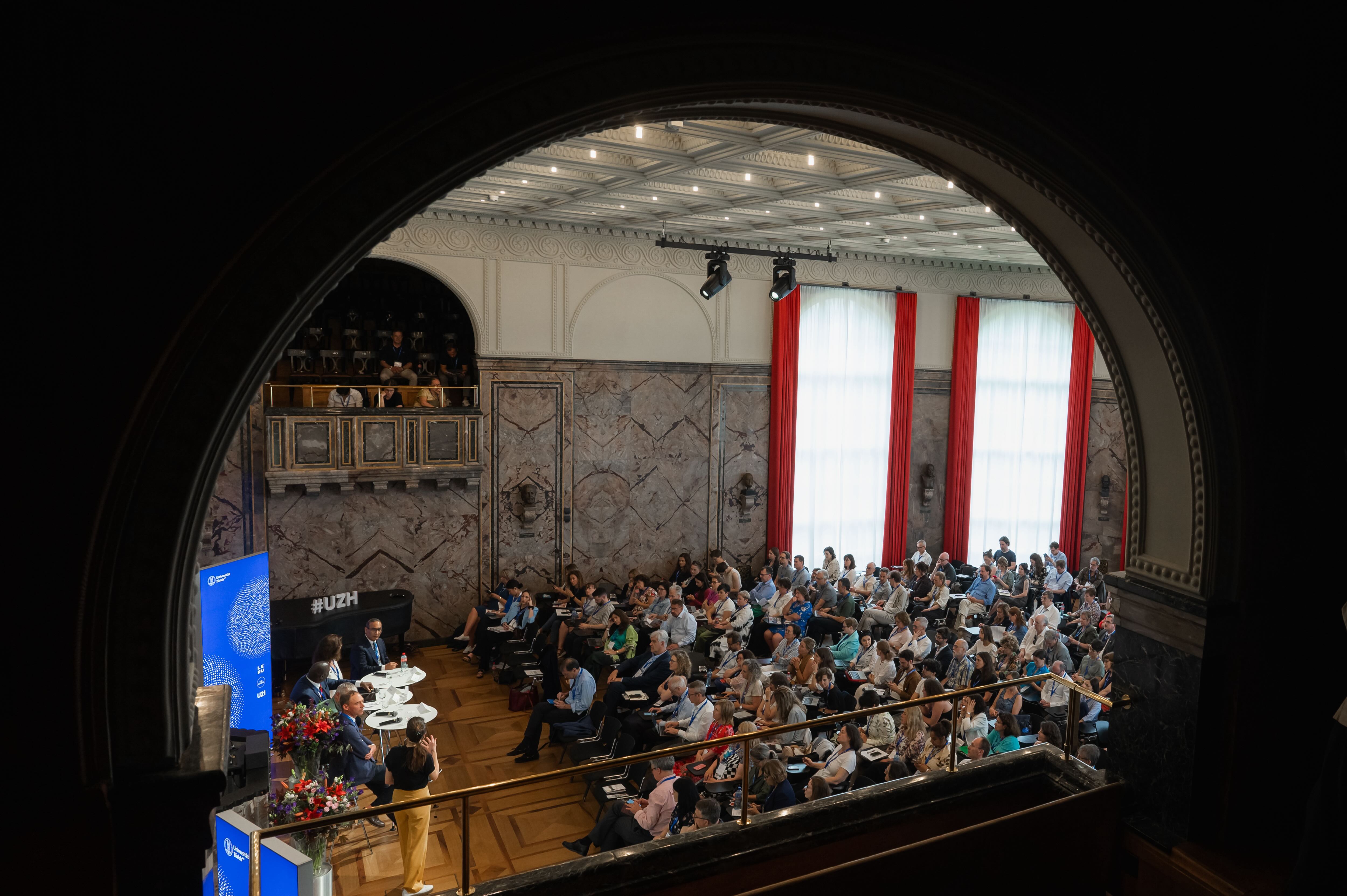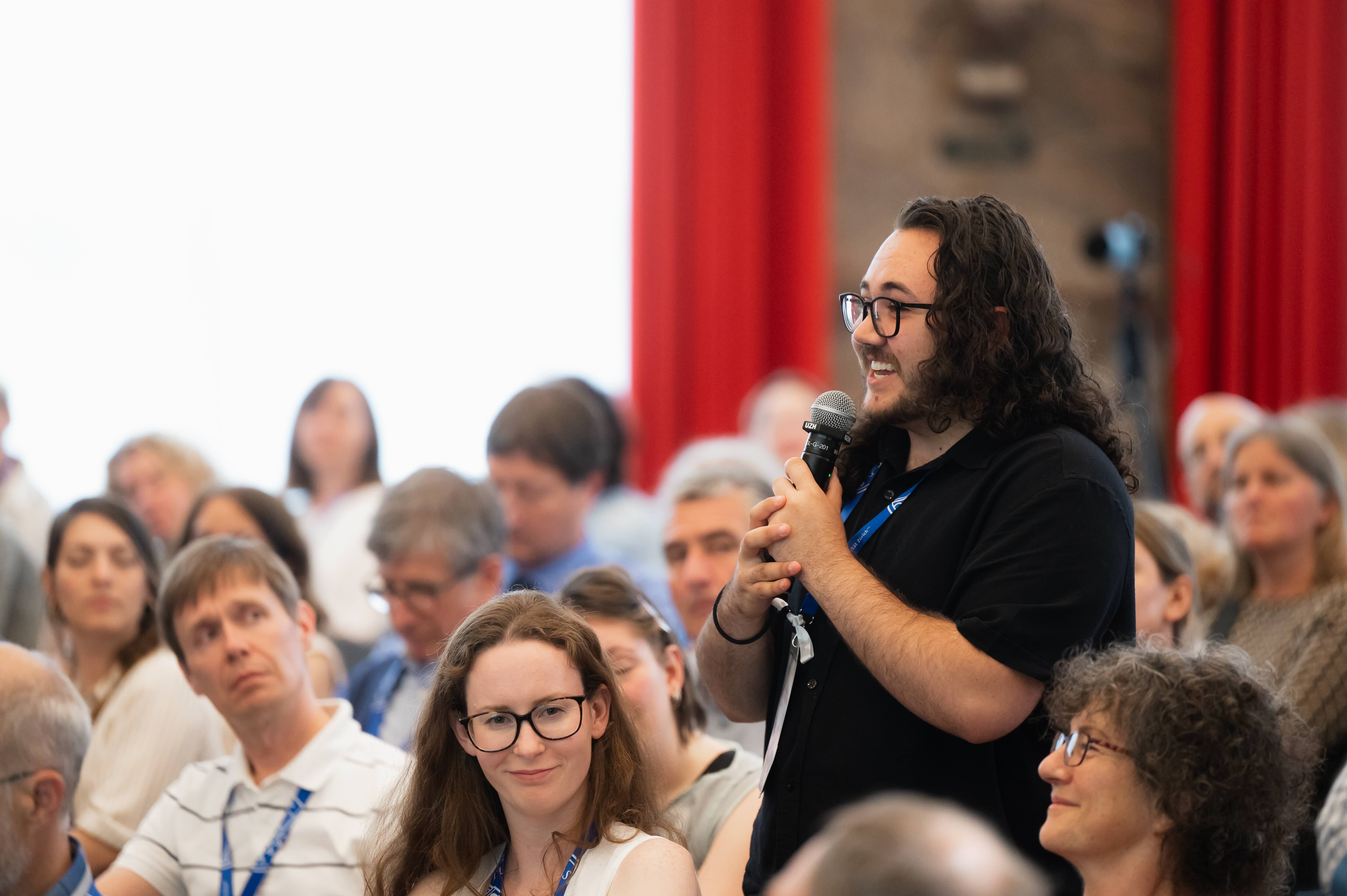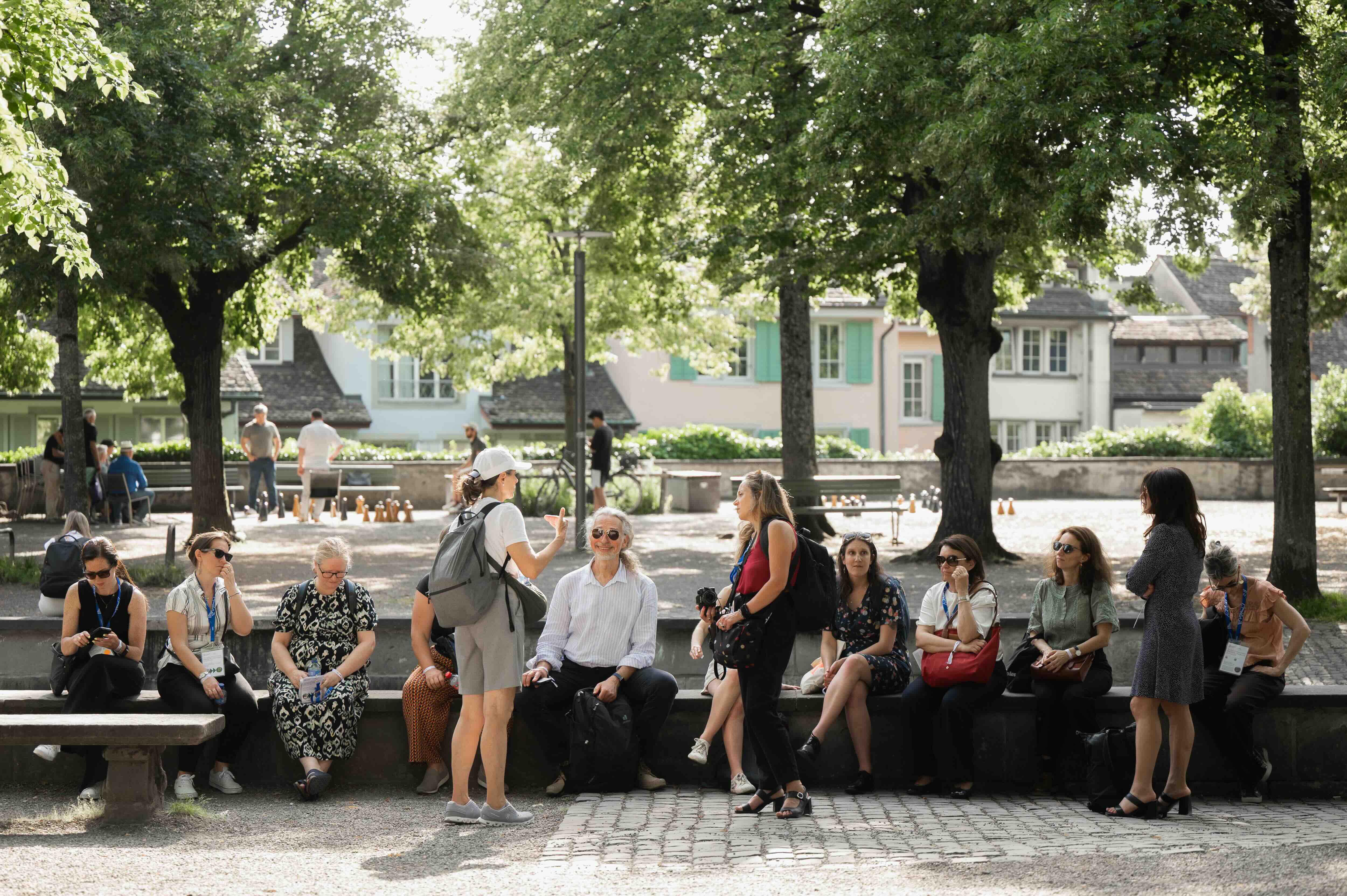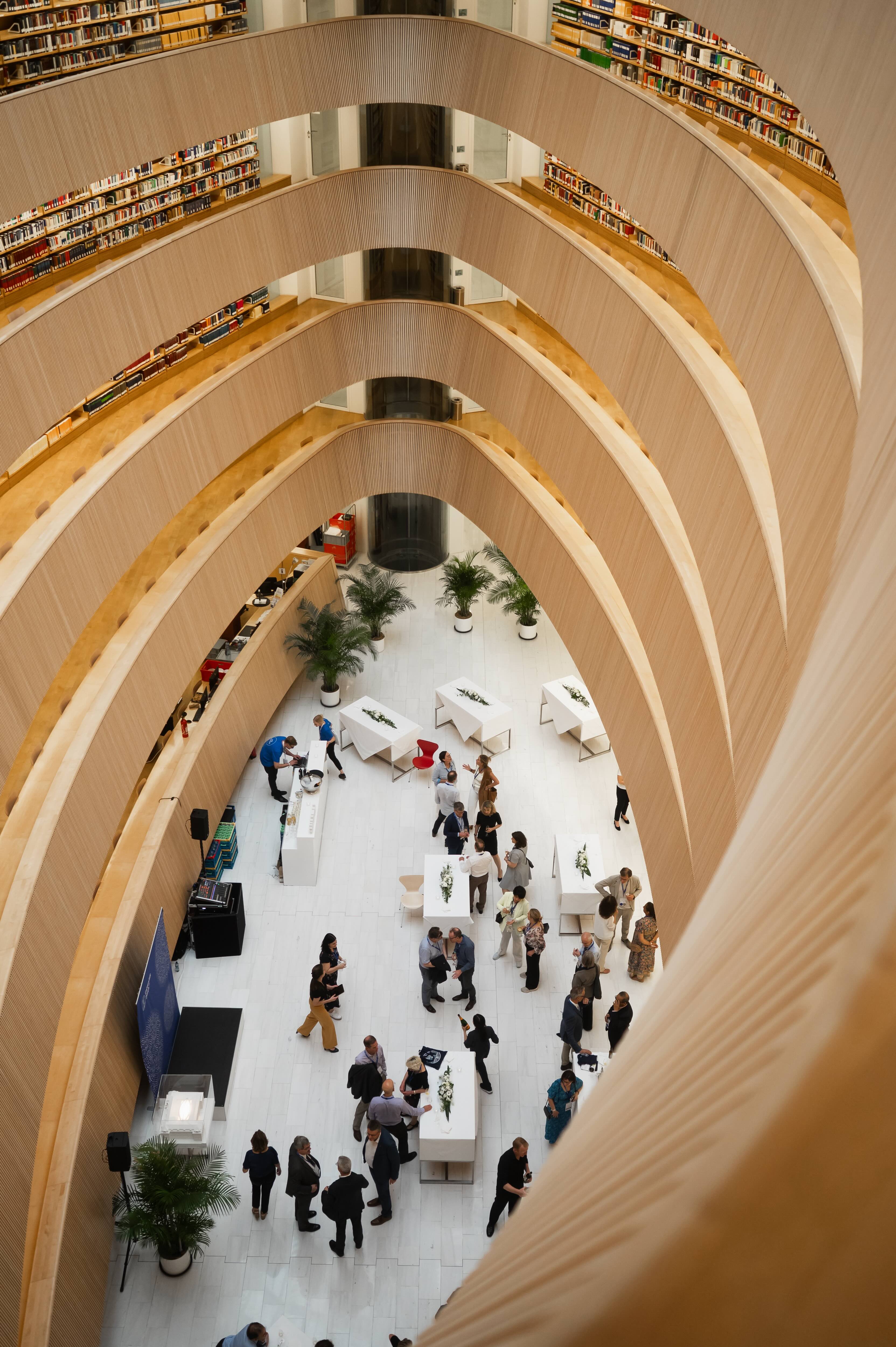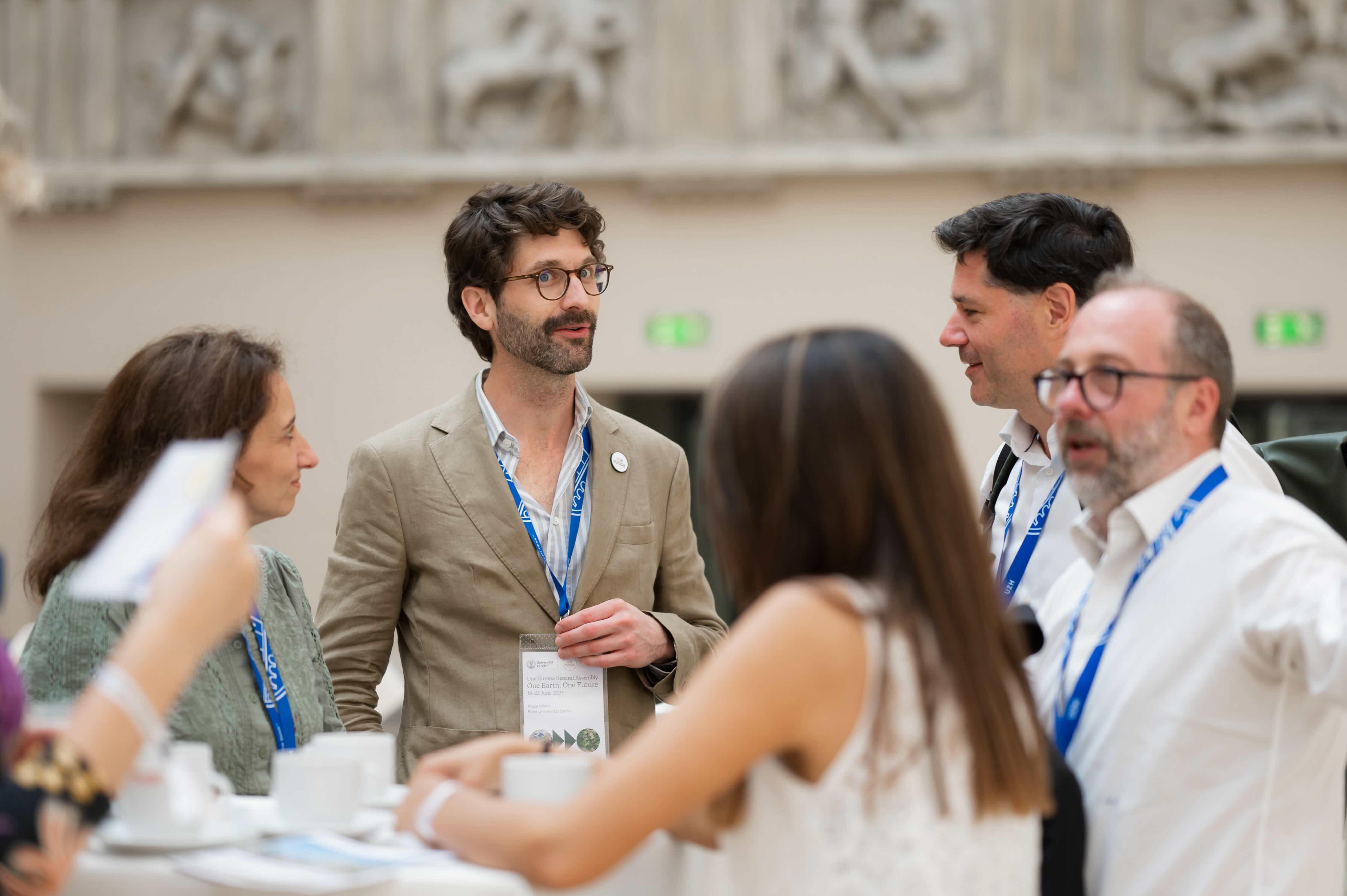UZH Hosts Una Europa General Assembly 2024
UZH has welcomed 300 delegates to Zurich for the three-day Una Europa General Assembly. Centered on the theme “One Earth, One Future”, this gathering highlighted a commitment to interdisciplinary and transdisciplinary collaboration among universities and other partners. Una Europa is an alliance of 11 European research-intensive universities, including UZH.
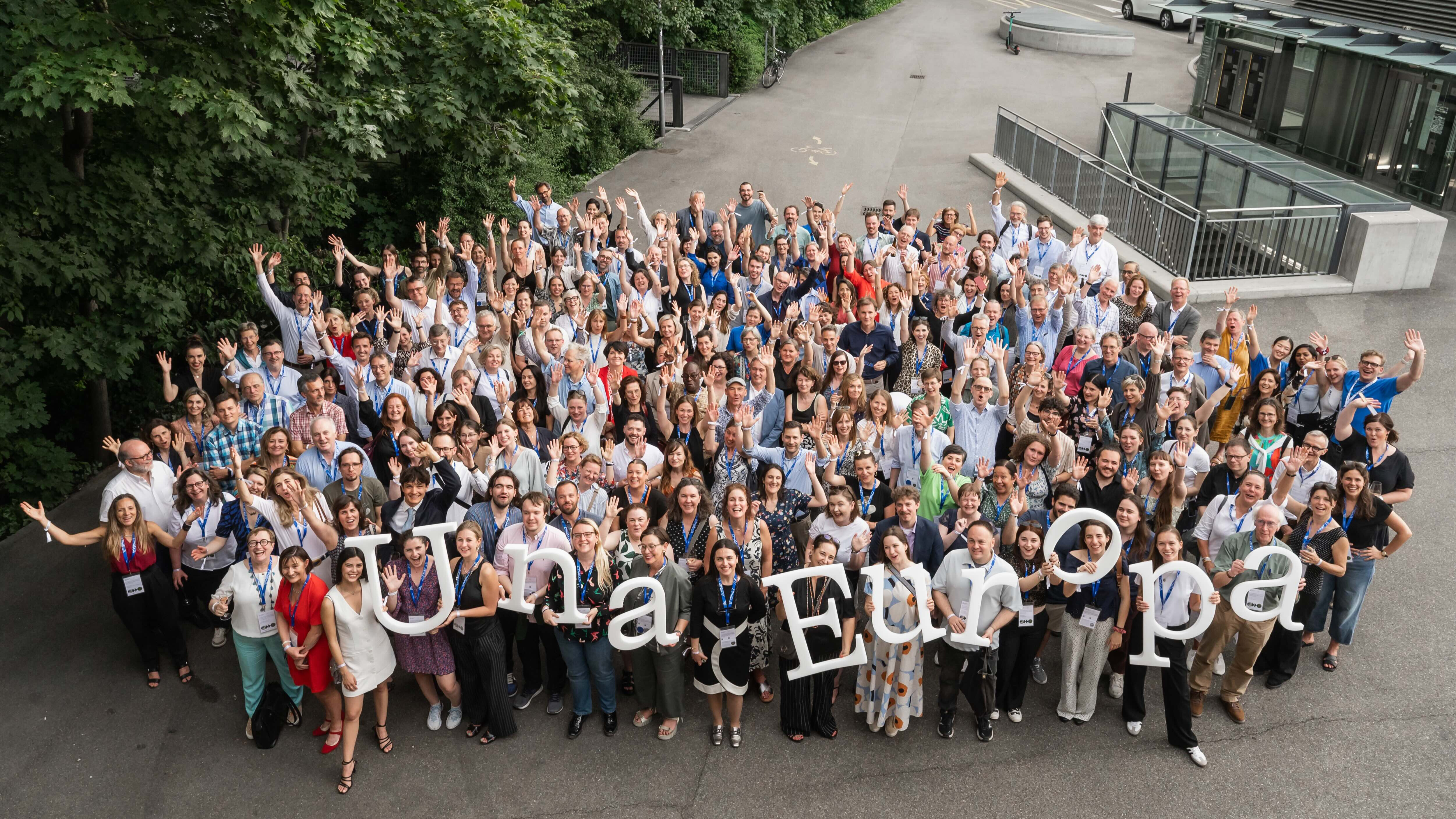
Hosting its first General Assembly since joining the alliance in 2022, UZH showcased its commitment to Una Europa's vision of building a University of the Future. The General Assembly’s guiding theme, “One Earth, One Future”, emphasized the shared responsibility for a common living space on Earth. Taking a holistic approach is particularly relevant to the concept of “One Health”, where interdisciplinary research offers innovative solutions when seeking sustainable solutions for zoonotic diseases, antibiotic resistance, and other health-related environmental impacts.
During the General Assembly, UZH President Michael Schaepman stated: “In today's interconnected world, the concept of One Health – recognizing the interdependence of human, animal, and environmental health – has never been more important. This is why the General Assembly carries the theme ‘One Earth, One Future’, and why UZH established a dedicated One Health Institute in 2023.” The One Health Institute (OHI) at UZH stands as a prime example of interdisciplinary cooperation, as it is a joint initiative of the Vetsuisse Faculty, the Faculty of Medicine, and the Faculty of Science. Furthermore, there are plans to involve other UZH faculties to integrate ethical, socio-cultural, legal, and political dimensions into the curriculum.
Highlights from the Una Europa Talk
The General Assembly brought together delegates – from students to board members – to various meetings, workshops, and social exchanges. One of the highlights was the “Una Europa Talk: Building Resilience through One Health”, a public event bringing together experts from Una Europa members and other key stakeholders to foster a meaningful dialogue. Panelists explored the essential ingredients of successful One Health projects and discussed challenges and solutions related to interdisciplinary and cross-institutional research. They also discussed how scientists could work together with policymakers and other stakeholders to turn scientific findings into policy.
Regarding transdisciplinary collaboration, which is focused on working together across sectors and partners, Elisabeth Stark, VP Research and Member of the Una Europa Board of Directors, proposed that “one of the key challenges is still fragmentation”. Academic institutions were still emphasizing credit points, budgets, or institutes, but: “that does not help”. In order for One Health to be resilient, it was furthermore important to speak with one voice: “As we are now a complete alliance, having one voice means we are being much better heard”, said Bruno Gonzalez Zorn, Head of the Antimicrobial Resistance Unit of the Universidad Complutense de Madrid, bringing in his personal experience as Head of the Self-Steering Committee on One Health.
An organization like Una Europa could play an important role in pushing forward an inter- and transdisciplinary approach, as it brings together experts from various backgrounds. “In my Self-Steering Committee, people are really working together because we are creating something from scratch,” said Bruno González Zorn.
Discussions also covered how One Health findings can be transformed into policy by collaboration between scientists, political decision-makers, policymakers, and the industry. Andrea Winkler, Co-Director, Centre for Global Health, Technical University of Munich (TUM), and Professor for Global One Health, University of Oslo, underlined that "for policies to be successful, the collective, or the community needs to be empowered, and not just be a part.”
Cultural Heritage and other academic initiatives
Another key moment during the General Assembly was Elisabeth Stark's announcement that UZH is set to participate in the Cultural Heritage Doctoral program, marking a significant step towards inter-university collaboration. Addressing the delegates during the Welcome Reception, Elisabeth Stark said: “We are thrilled that UZH will soon become part of the Doctoral Program in Cultural Heritage, ‘Una-Her-Doc’, which will be another great opportunity for our students and staff to appreciate the enriching diversity of our alliance.”
The participation in the “Una-Her-Doc”-Degree complements UZH’s engagement in the co-development of the Joint BA in European Studies (BAES). This degree will be available at UZH through the Faculty of Arts and Social Sciences from the Spring Semester of 2025, allowing for student exchanges among Una Europa partner universities. Furthermore, UZH is set to launch a joint BA in Sustainability in 2025, and is participating in summer schools in One Health, aligning with UZH’s specific focus.
Besides participating in joint degree programs and summer schools, UZH is strategically moving towards aligning its academic, research, and institutional goals with the collective objectives of the Una Europa alliance, such as by encouraging regular exchange between different academic disciplines. This enables UZH to be at the forefront of European research-intensive universities addressing global challenges, while it provides access to a broader network of resources, collaboration, and mobility opportunities across Europe.
Plenary sessions and interdisciplinary workshops
As a premiere, the General Assembly at UZH has hosted a meeting that brought together members of all the Una Europa Self-Steering Committees to explore the challenges and opportunities of interdisciplinary collaboration in their respective focus areas, including “Sustainability” and “Europe and the World”. To encourage a discussions on key questions in an informal setting, the meeting was set up in the form of a “world café”, a collaborative dialogue method.
During the meeting, one delegate noted“There are implicit power relations between the academic disciplines. The question is: Who is setting the agenda?” oTo improve collaboration, there was the need to “understand each other’s language”, which required time and resources. “We need to build a boat, and academics need to get on that boat”, another delegate remarked; and delegates were keen to put together first thoughts on a “One Health Charta”, which would bring a One Health perspective as a default, or “box to tick”, into every discussion.
The Plenary session of the General Assembly further focused on the concept of One Health and aimed to enhance all delegates’ literacy about it. To illustrate how the concept of One Health can be applied in real-world scenarios, experts from the Una Europa network from Europe, Uganda, and India, presented examples ranging from Lyme disease to rabies.
Culture and old town Zurich on the agenda
Furthermore, the General Assembly included a series of workshops alongside a vibrant social and cultural program. Delegates had the opportunity to explore some of Zurich’s historic sights, including Zurich’s old town and the Kunsthaus Zürich, as well as to engage in a workshop on the key factors driving successful collaboration in international networks.
Future prospects and closing remarks
The event concluded with a ceremony where Elisabeth Stark emphasized UZH's commitment to shaping the European higher education and research agenda together with Una Europa: “We are determined to play a key role in shaping the University of the Future for a better future for all.”
As Una Europa celebrates its fifth anniversary in autumn 2024, the alliance continues to champion interdisciplinary approaches to education and research, addressing global challenges with global solutions. UZH remains dedicated to actively engaging in and co-developing Una Europa’s joint education initiatives, ensuring that students, staff, and researchers benefit from the manifold opportunities within the alliance. The next General Assembly will be held in Bologna in December 2024.
Anne Nuria Boekhout
